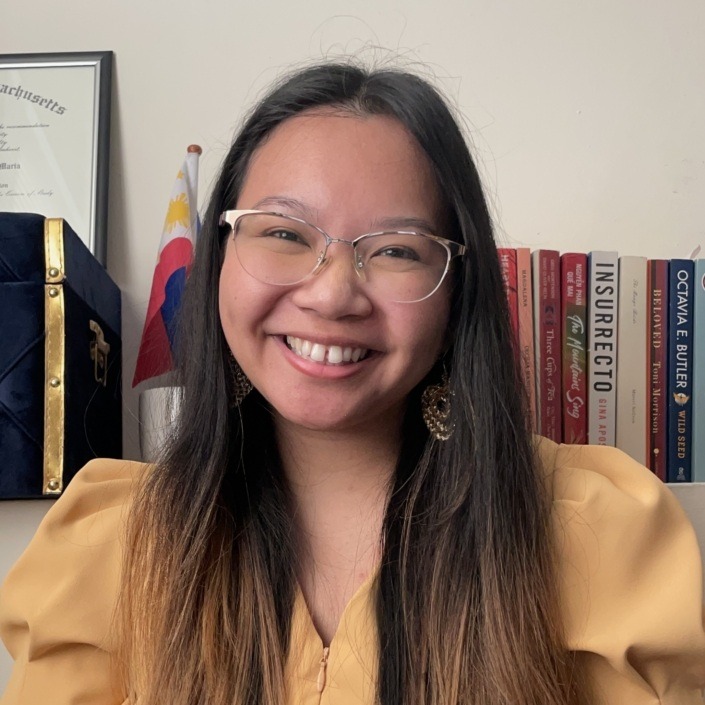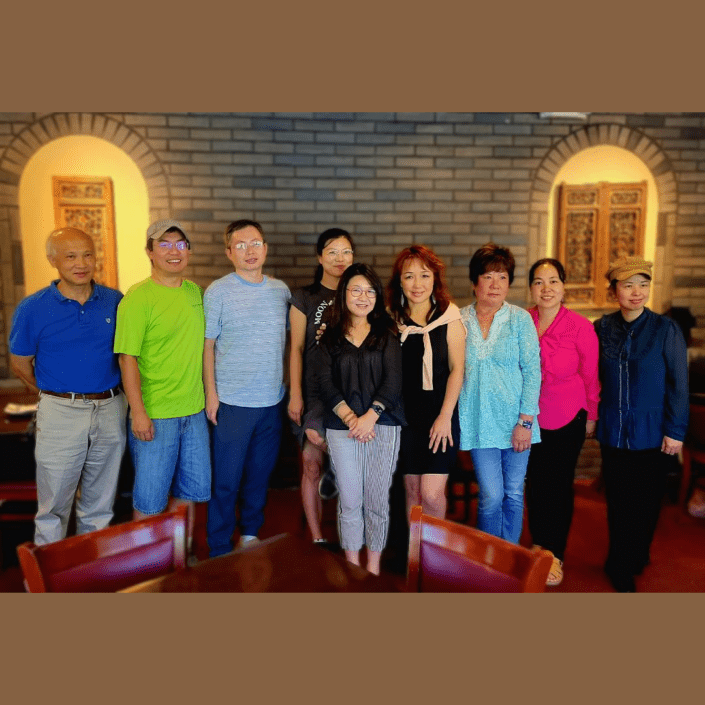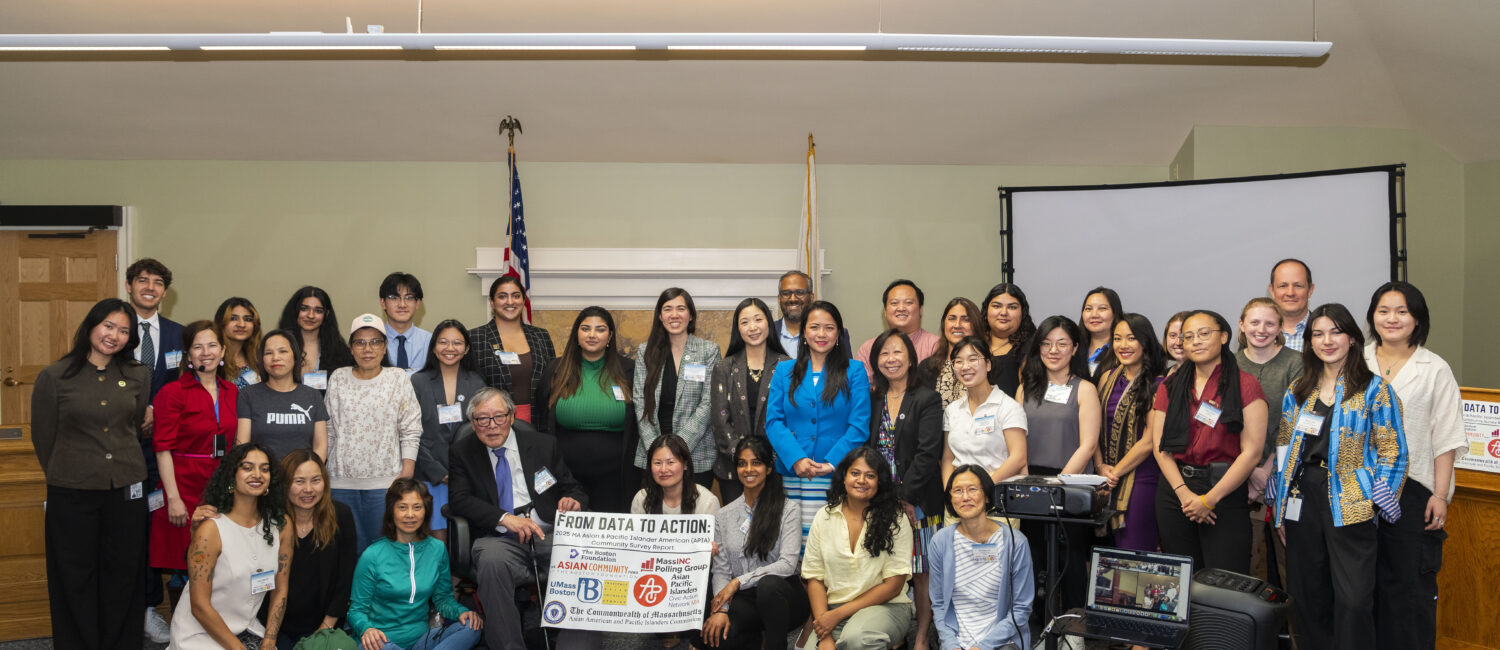
2025 APIA Community Survey
The MA Asian Pacific Islander American (APIA) Community Survey amplifies the diverse voices of APIA residents across the Commonwealth. It examines critical areas including housing, civic engagement, safety and sense of belonging, healthcare access, and emerging issues such as climate change and executive actions by the current presidential administration. The resulting data and report hopes to inform policy, support advocacy efforts, contribute to academic research, and highlight the rich diversity of Massachusetts’ APIA communities.
For more information, contact AAPIC Program & Research Director Shubhecchha Dhaurali at [email protected].
.

Massachusetts Asian and Pacific Islander American (APIA) Community Survey Report
Key Findings Summary Report
No Longer Invisible: 2025 Massachusetts Asian and Pacific Islander American (APIA) Community Survey Report
To read the full ENGLISH report, please visit:
https://aapicommission.org/wp-content/uploads/2025/06/No-Longer-Invisible-6-2-25-rev3.pdf
REPORT KEY-FINDINGS SUMMARY
Sponsors
This survey would not have been possible without the generous funding and dedicated support provided by the Institute for Asian American Studies at the University of Massachusetts Boston, the Commonwealth of Massachusetts Asian American and Pacific Islanders Commission (AAPIC), the Asian Community Fund (ACF), The Boston Foundation, and the Asian and Pacific Islanders Civic Action Network (APIs CAN). Their investment of both resources and personnel was instrumental in bringing this project to life.
Note on Terminology:
In this report, the term “Asian and Pacific Islander American (APIA)” reflects two distinct groups—Asian Americans and Pacific Islander Americans—while aligning with widely used conventions. We use the term to refer to Massachusetts residents with heritage from Asian countries (e.g., China, India, Vietnam, Nepal, Korea) and Pacific Island nations (e.g., Samoa, Fiji, the Marshall Islands, Tonga, Hawai‘i). While we recognize that many organizations use the term Asian American and Pacific Islander (AAPI), we intentionally use APIA to affirm that Pacific Islanders are American as well. “American” is used inclusively, regardless of citizenship or immigration status.
Recommended Citation:
Dhaurali S, Watanabe P. No Longer Invisible: 2025 Massachusetts Asian and Pacific Islander American (APIA) Community Survey Report. Boston (MA): Institute for Asian American Studies at UMass Boston; Asian American and Pacific Islanders Commission. 2025 June 3.
Introduction
Asian and Pacific Islander American (APIA) communities are the fastest-growing racial group in Massachusetts, yet they remain underrepresented and often invisible in data, research, and policy. Without accurate, disaggregated, and locally grounded information, the diverse needs and perspectives of these communities are frequently misunderstood, mischaracterized, or entirely overlooked. This lack of visibility has real-world consequences, from political exclusion to gaps in services and support. The Massachusetts APIA Community Survey aims to close these gaps by gathering meaningful data on the political, social, and economic experiences of APIA residents—ensuring their voices are heard, counted, and reflected in the policies that affect their lives.
Methods
From March to July 2024, a collaborative team from IAAS, AAPIC, APIs CAN, and ACF developed a 35-question survey with support from MassINC Polling Group, drawing on prior research and community input. The survey was conducted in March 2025 with 1,417 (of which 1,414 were eligible) APIA residents across Massachusetts through phone, text-to-web, and online formats. It was offered in English, Simplified Chinese, Vietnamese, and Khmer to ensure accessibility. Responses were weighted to reflect key demographic factors, and data were disaggregated where possible—specifically for Chinese, Indian, and Vietnamese groups, each with at least 100 respondents.
Main Findings
Inflation/Economy/Cost of Living
- Cost of living is a top concern across communities.
- Roughly one-third (32%) of all respondents identified inflation, the economy, or cost of living as a top issue in Massachusetts (Figure 1)—this concern was consistent across gender, ethnicity, and most age groups, demonstrating its widespread impact.
Housing
- Housing affordability is a widespread and deeply felt concern.
- While 27% of all respondents cited housing as the most pressing issue in Massachusetts (Figure 1), an even greater proportion (30%) reported personally struggling to afford housing (Figure 3)—indicating that this issue is not just perceived but directly experienced across the state.
Healthcare
- There’s a major gap between public perception and personal healthcare burden.
- While only 4% of respondents identified healthcare as a top statewide issue (Figure 1), far more reported personal financial strain—28% struggled to afford healthcare services and 26% struggled with insurance costs—revealing a disconnect between policy conversations and lived realities (Figure 3).


Political Identification
- A majority of APIA respondents lean Democratic, but partisan affiliation varies by ethnic subgroup (Figure 11).
- While most respondents in Massachusetts identify with the Democratic Party, there are significant differences across subgroups. Indian Americans showed the strongest Democratic affiliation (64%), Chinese Americans were more evenly split (55%), and Vietnamese Americans reported the weakest Democratic support (45%) and the highest relative support for Republicans. These distinctions emphasize the political diversity within the APIA community.
Voter Registration
- High overall voter registration and turnout among APIA respondents, with clear age-related trends (Figure 12).
- Despite facing structural barriers, 80% of APIA survey respondents reported being registered to vote in Massachusetts, and among them, 84% said they voted in the 2024 Presidential Election. Registration and turnout increased significantly with age—94% of respondents aged 60+ were registered, and 92% of them reported voting.


Vote Choice For President In 2024
- Strong support for Kamala Harris among APIA voters in Massachusetts (Figure 14).
- A clear majority (67%) of APIA respondents reported voting for Kamala Harris in the 2024 election, surpassing the statewide support she received (61%). This indicates a higher-than-average alignment with the Democratic ticket among APIA voters.
Other Types of Political Participation
- Significant non-voting political engagement among APIA communities (Figure 15).
- Many Asian and Pacific Islander Americans in Massachusetts reported participating in civic activities beyond voting: 23% signed petitions, 19% attended government meetings, 17% donated to campaigns, and 15% attended rallies. This underscores the broader political involvement of the community, including non-citizens who may not be eligible to vote.


Executive Orders (Figure 17)
- Strong opposition to ending birthright citizenship among APIA respondents.
- Ending birthright citizenship drew the most opposition, with 45% strongly opposing it and overall 70% opposing (especially among younger respondents and Democrats). Opposition was highest among women, younger adults (18–44), Indian Americans, and those with birthright citizenship.
- DEI initiatives rollback also faces significant resistance.
- A majority opposed dismantling diversity, equity, and inclusion efforts (61% women, 54% men). Younger and working-age groups, Indian and Vietnamese Americans, Democrats, and citizens (birthright and naturalized) were more likely to oppose the rollback.
- More divided views on increased deportation, but opposition still predominates.
- While opposition to deportation of undocumented immigrants was less unanimous (majority opposed but with more varied opinions), women, younger respondents, Vietnamese Americans, and Democrats showed stronger opposition. Republicans and older adults showed less opposition. Citizenship status also correlated with opposition levels.
Anticipated Impacts of the Trump Administration
- Broad Negative Impact Across Multiple Key Issues (Figure 21).
- Over 60% of respondents anticipated negative effects from the Trump Administration and the Republican-controlled Congress on critical issues including LGBTQ+ rights (67%), immigrant rights (66%), racism (65%), reproductive rights (63%), climate change (63%), and immigration policy (61%). This reflects widespread concern across diverse policy areas that affect the APIA community.




Safety & Sense of Belonging
- Persistent Racism Despite Success and Contributions.
- Although Asian Americans are the fastest-growing ethnoracial group with high education and income levels, many still face racism, exclusion, and a conditional or limited sense of belonging. Only 39% strongly agree they feel they belong in the U.S. (Figure 29), revealing a tension between outward success and internal experiences of discrimination and exclusion (Figures 31 and 32).
- Discrimination is Common and Often Unreported.
- Nearly a quarter of respondents (23%) experienced discrimination, 21% faced racial or ethnic slurs, and 14% experienced verbal harassment in the past year. However, 64% of those experiencing discrimination did not report it to any authority or organization, largely due to fear of retaliation or unwanted attention (Figure 34).


Discussion & Future
Despite offering the survey in four languages and using multiple response methods, some APIA groups—especially those speaking other languages or with limited access to phones or the internet—may have been underrepresented. While data were weighted to reflect the broader population, response biases may still exist. Looking ahead, the goal is to conduct this survey biennially, expand the sample size for better disaggregation, and push for APIA inclusion in larger state and national surveys. Continued support and new partnerships are essential to sustain this effort and ensure APIA voices are consistently represented in data and policy.
Acknowledgements
The 2025 APIA MA Community Survey was led by Shubhecchha Dhaurali (AAPI Commission) and Dr. Paul Watanabe (UMass Boston), with key support from Shauna Lo, Saatvik Ahluwalia, Karen Chen, Danielle Kim, Yasmin Padamsee Forbes, Jennifer Best, Jaya Savita, and Dr. MyDzung Chu. Survey design and fielding were led by Mahashraya Bowen and Steve Koczela (MassINC Polling Group), with translations by Karen Chen (Simplified Chinese), Sreang Heng (Khmer), and Theresa Kim Nguyen (Vietnamese). The report was co-authored by Shubhecchha Dhaurali and Dr. Paul Watanabe, with visual design by Joelle Riffle and feedback from Shauna Lo, Danielle Kim, Leela Ramachandran, Steve Koczela, and Mahashraya Bowen. Communications and outreach were supported by Catherine Drennan Lynn, Anne Lizette Sta. Maria, Monita Seng, and Leela Ramachandran.
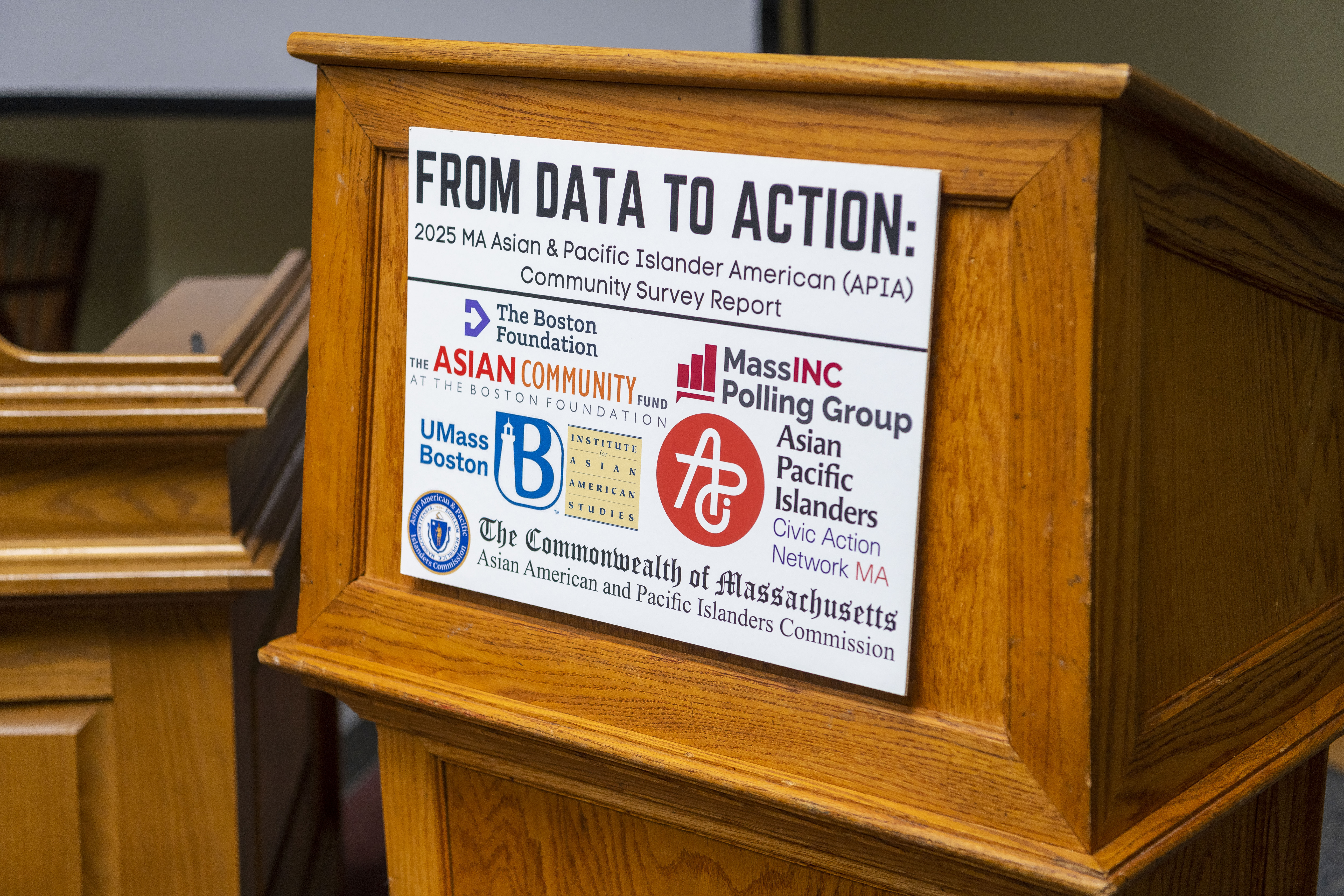

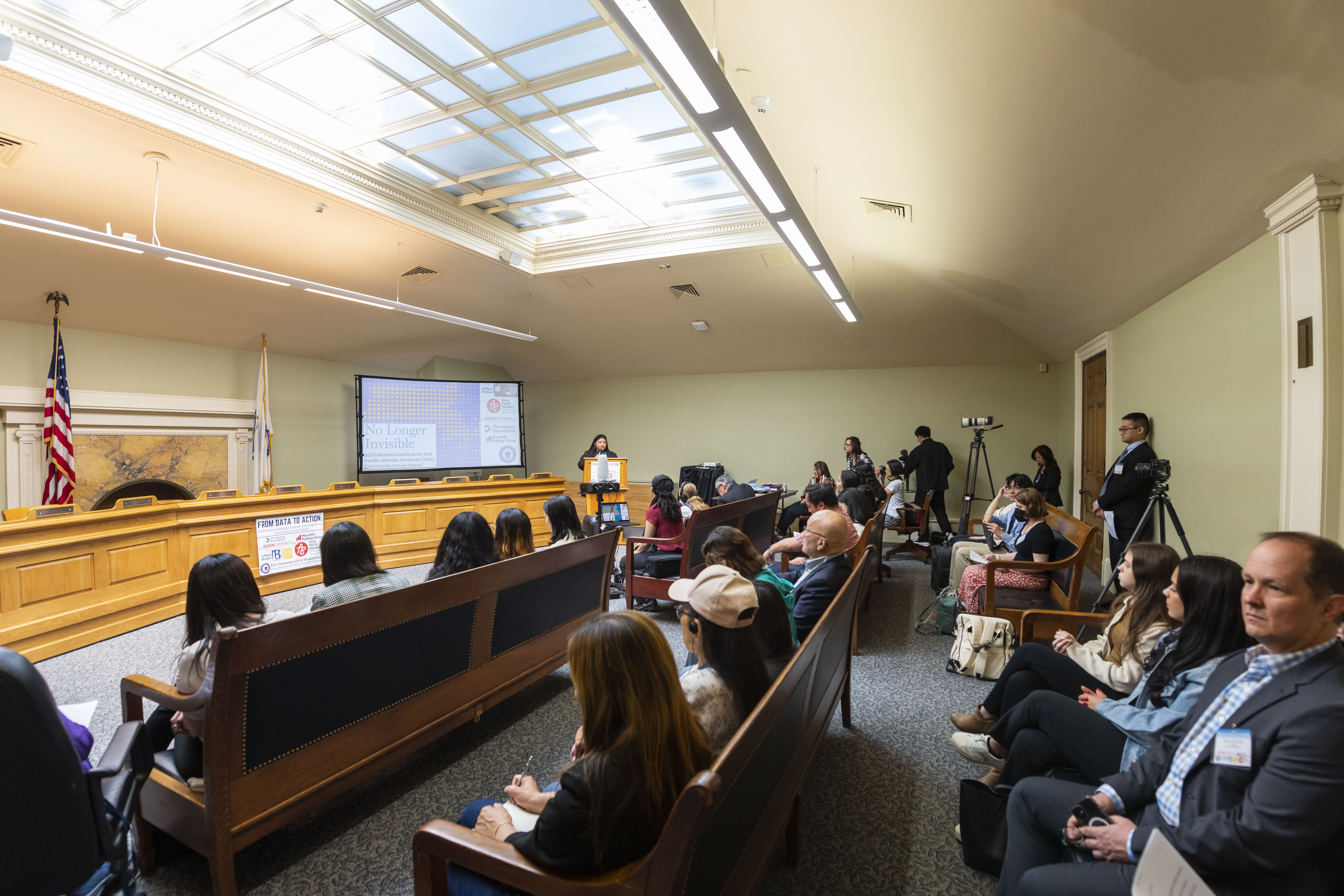
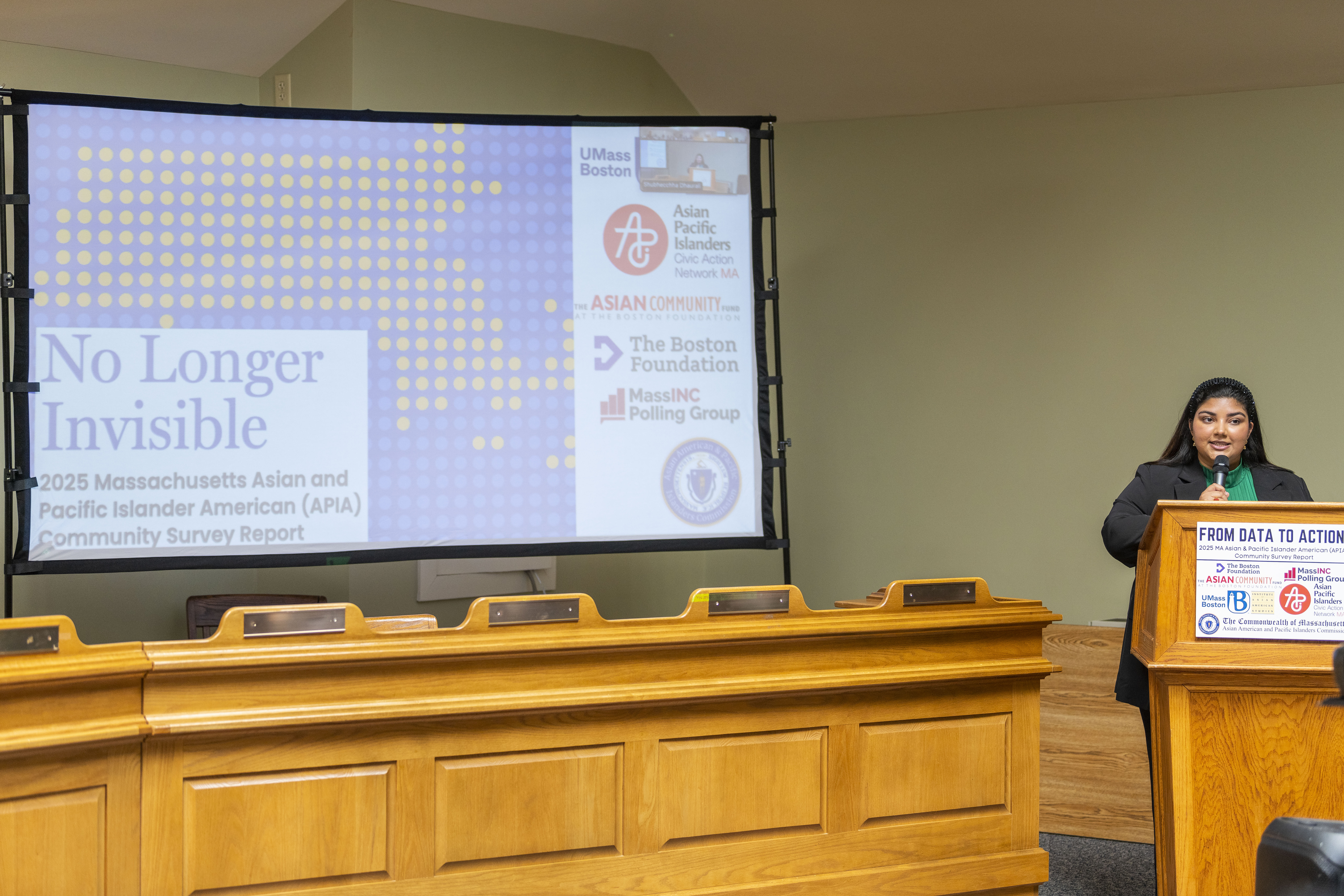
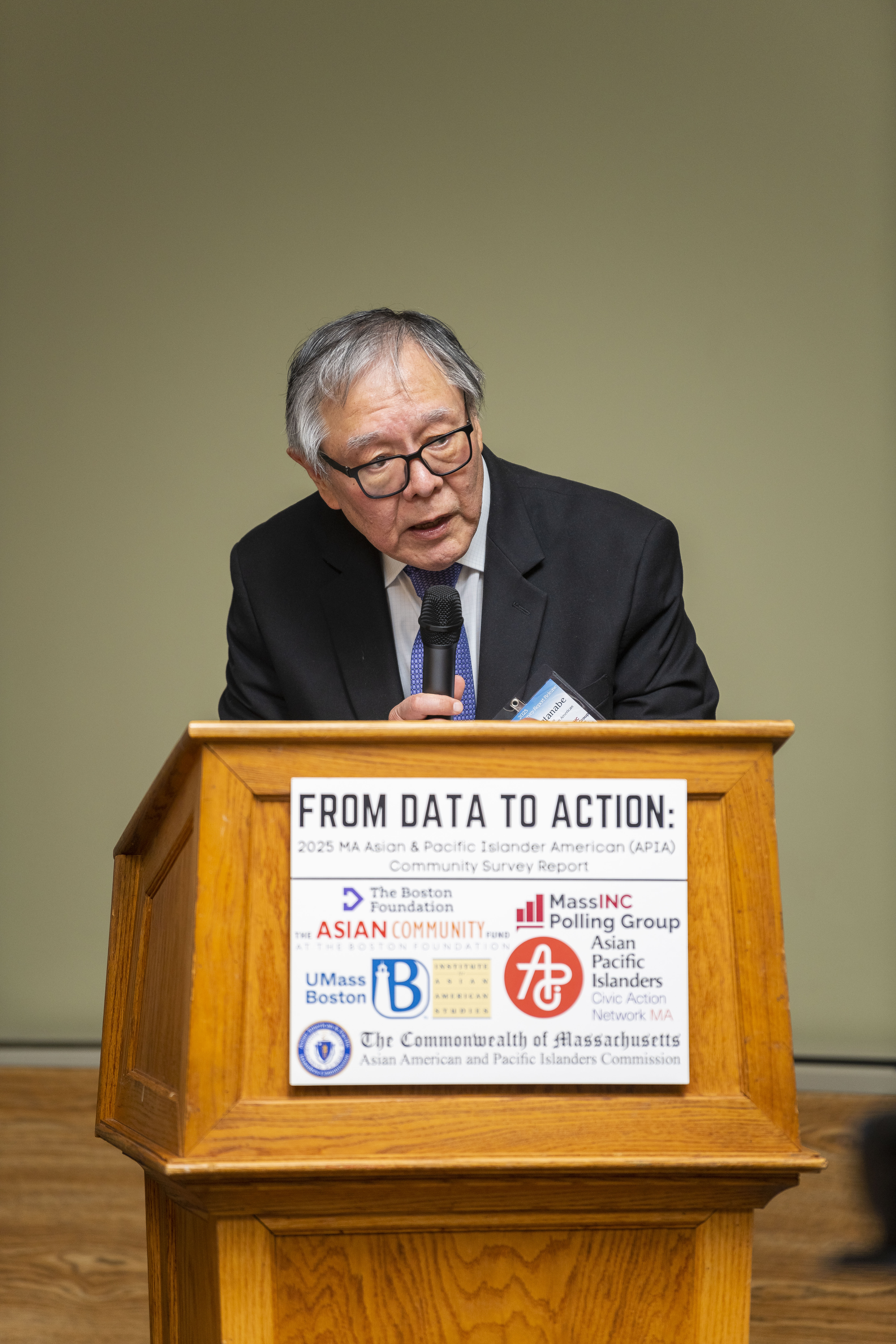

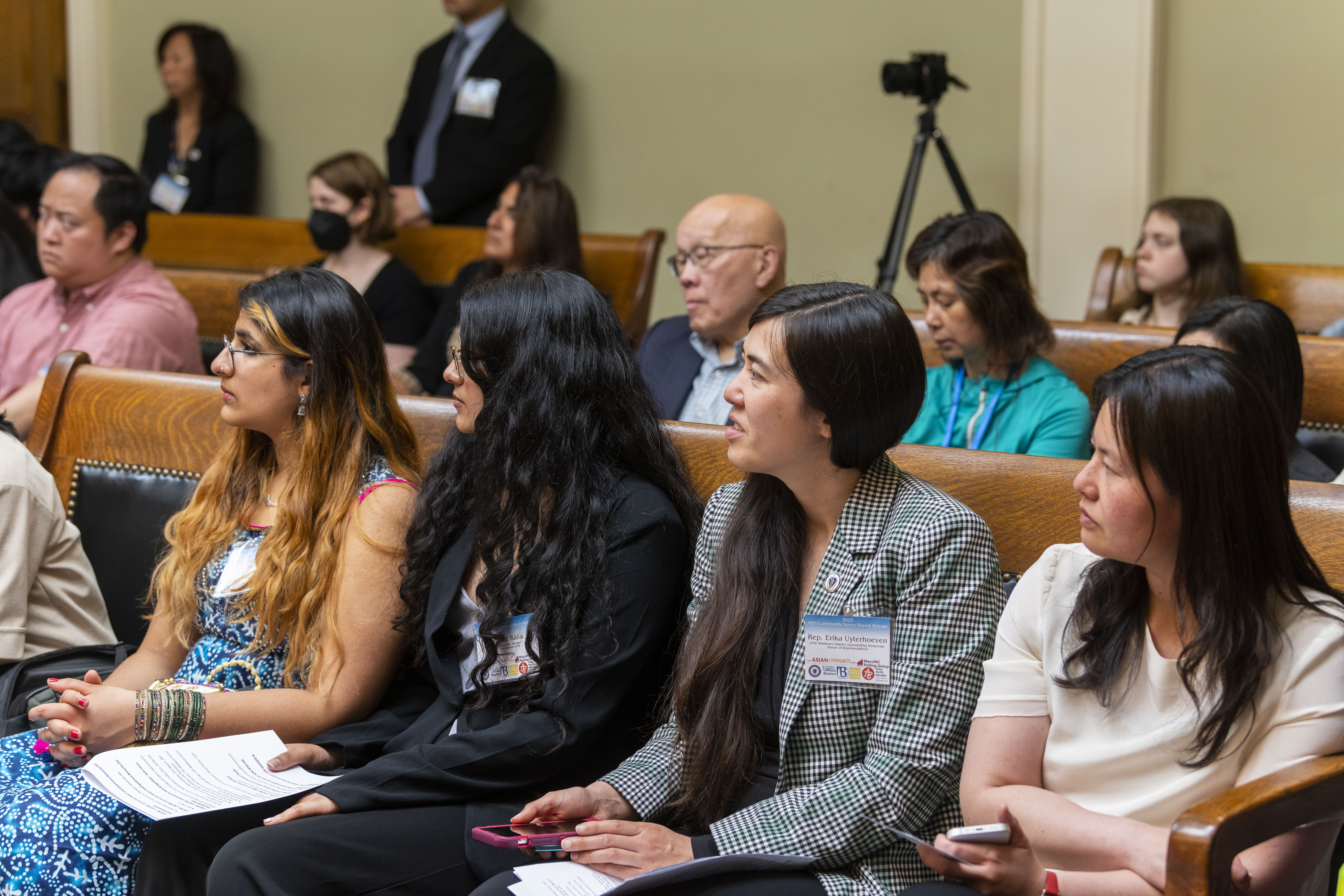

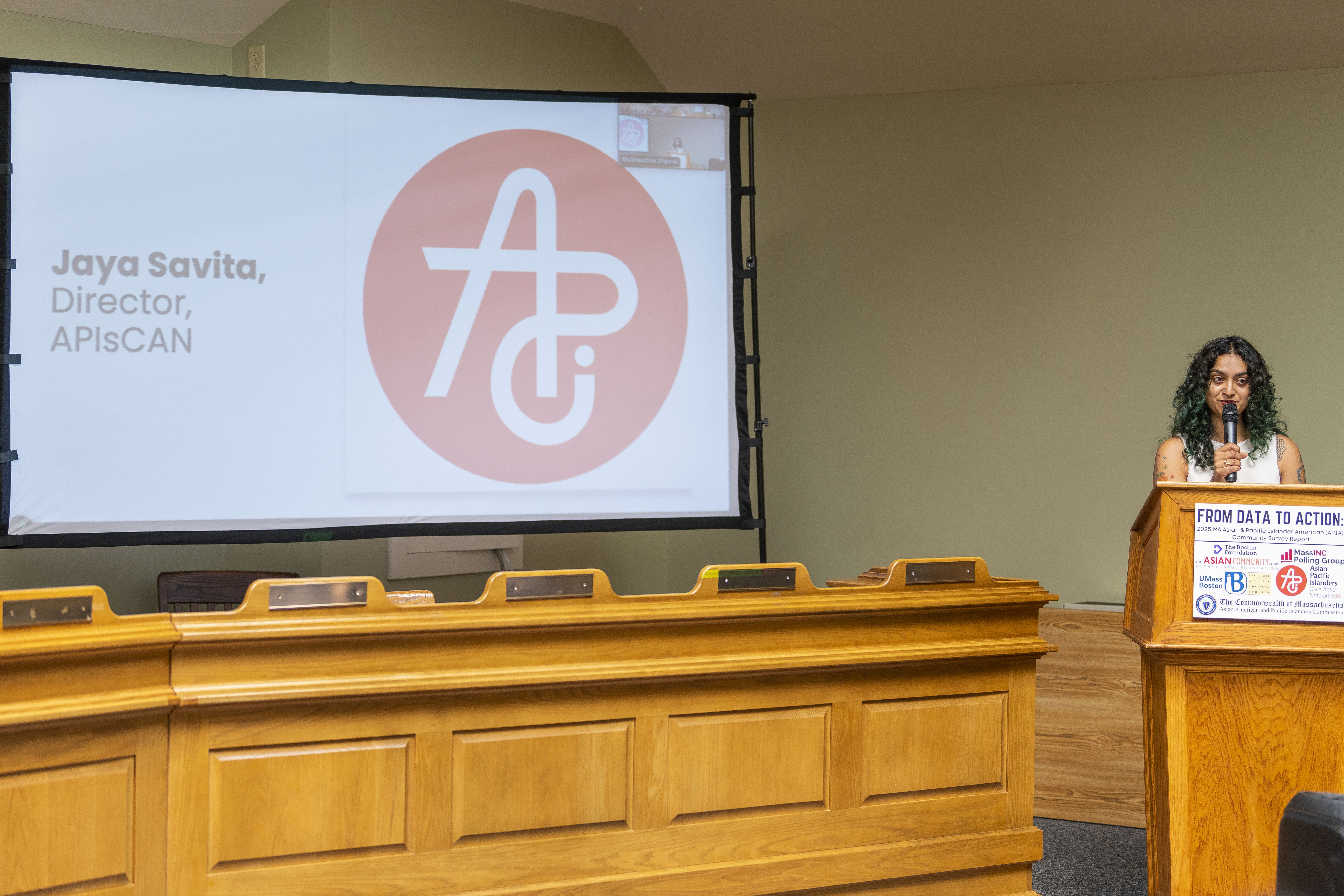
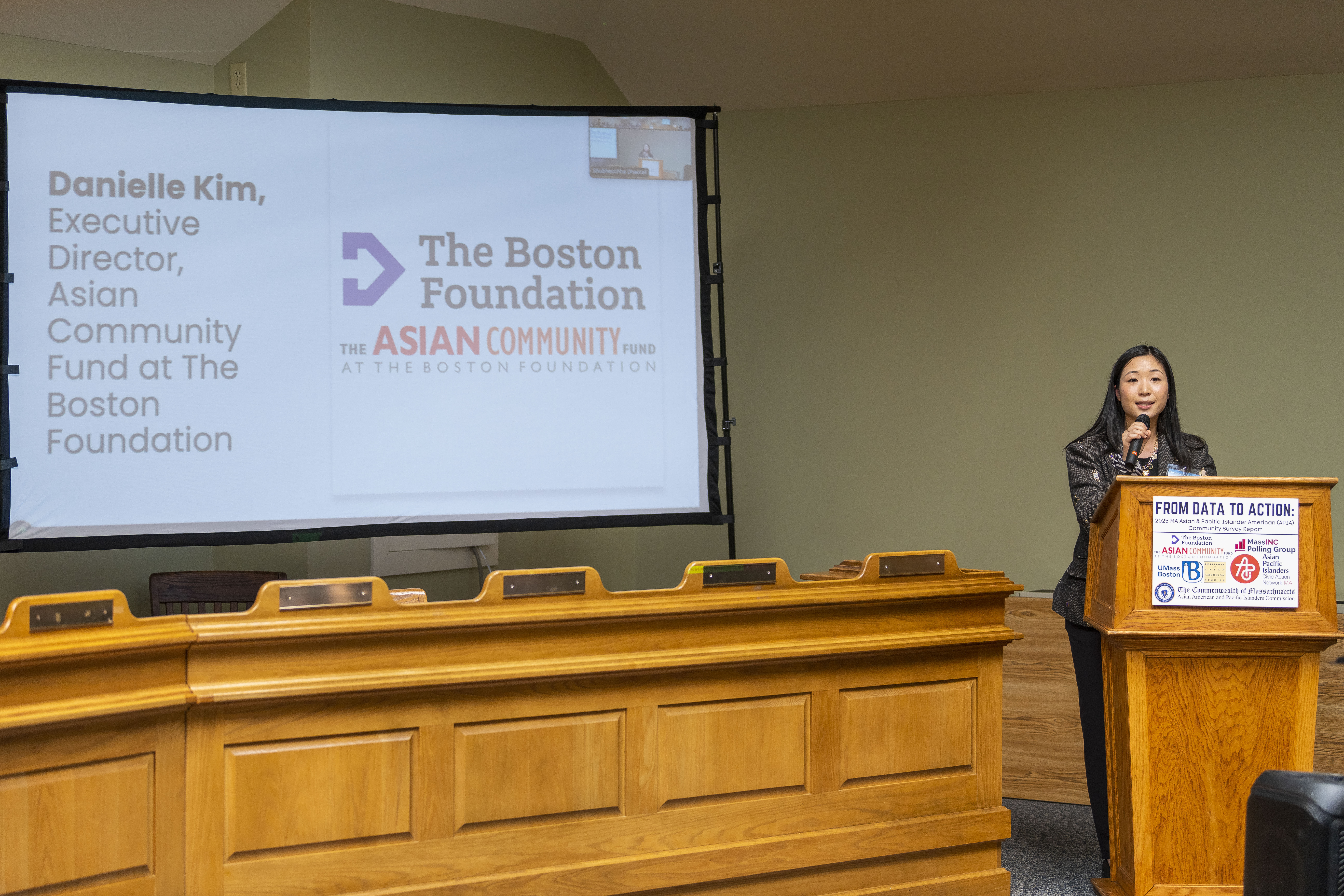
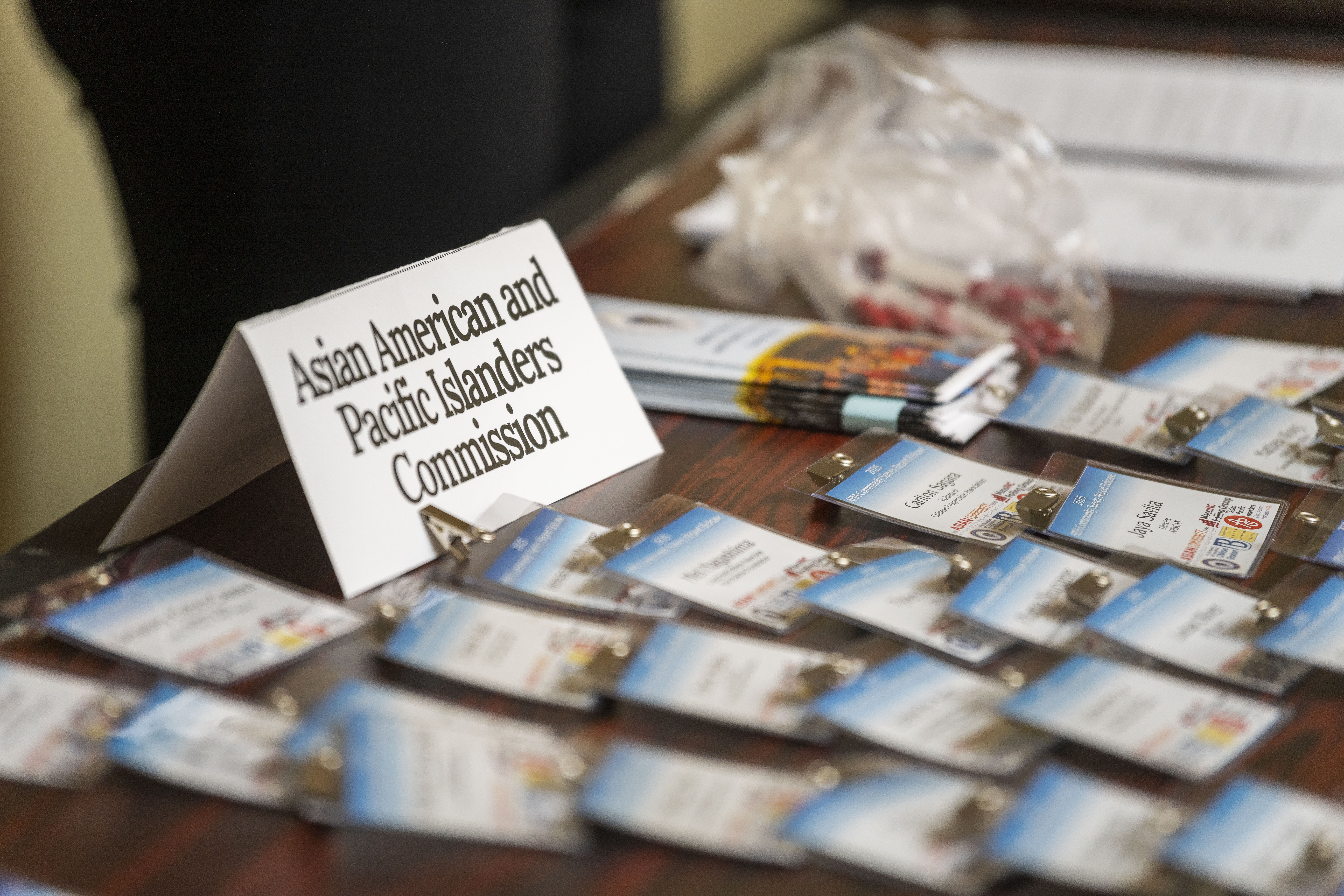
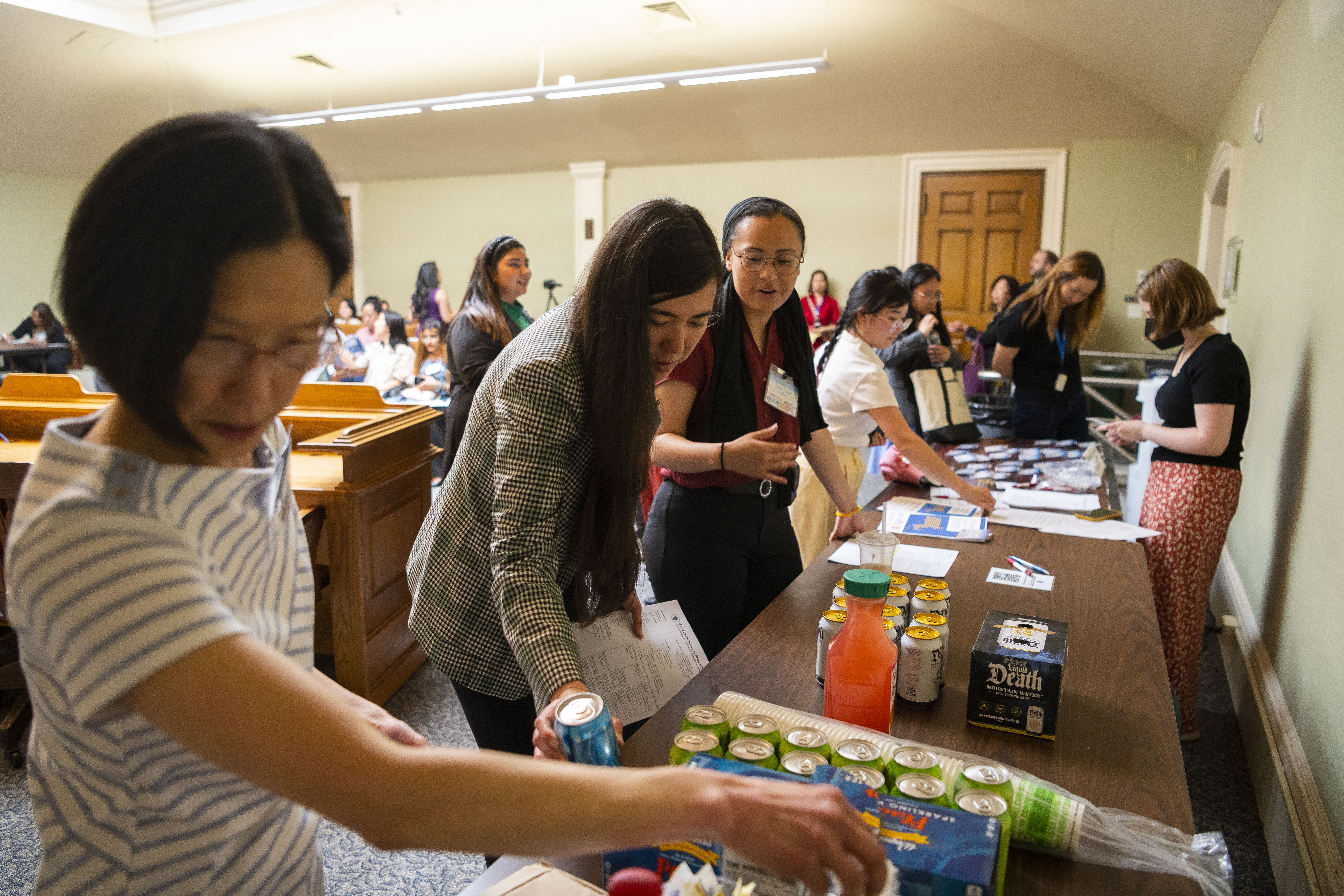
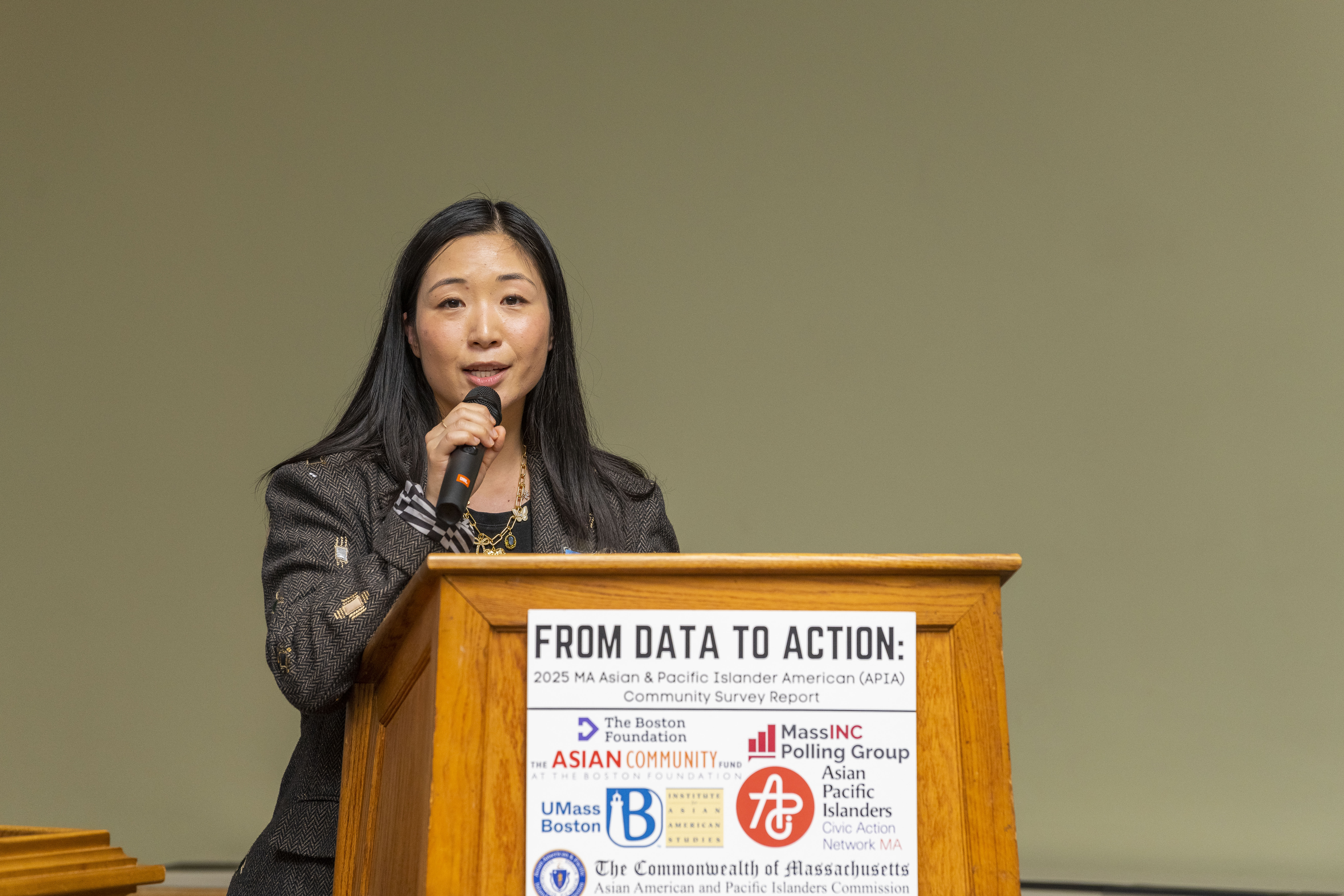
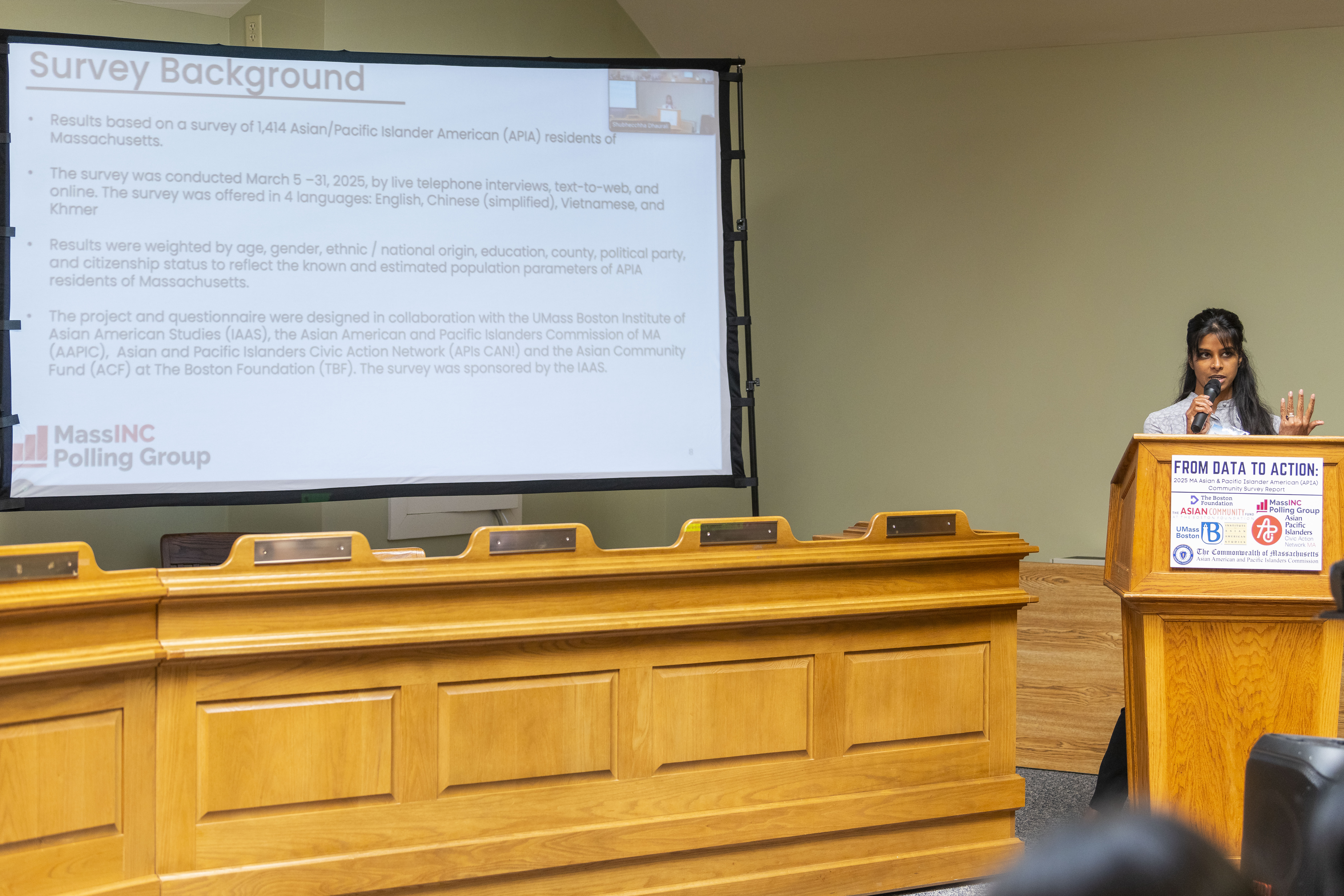
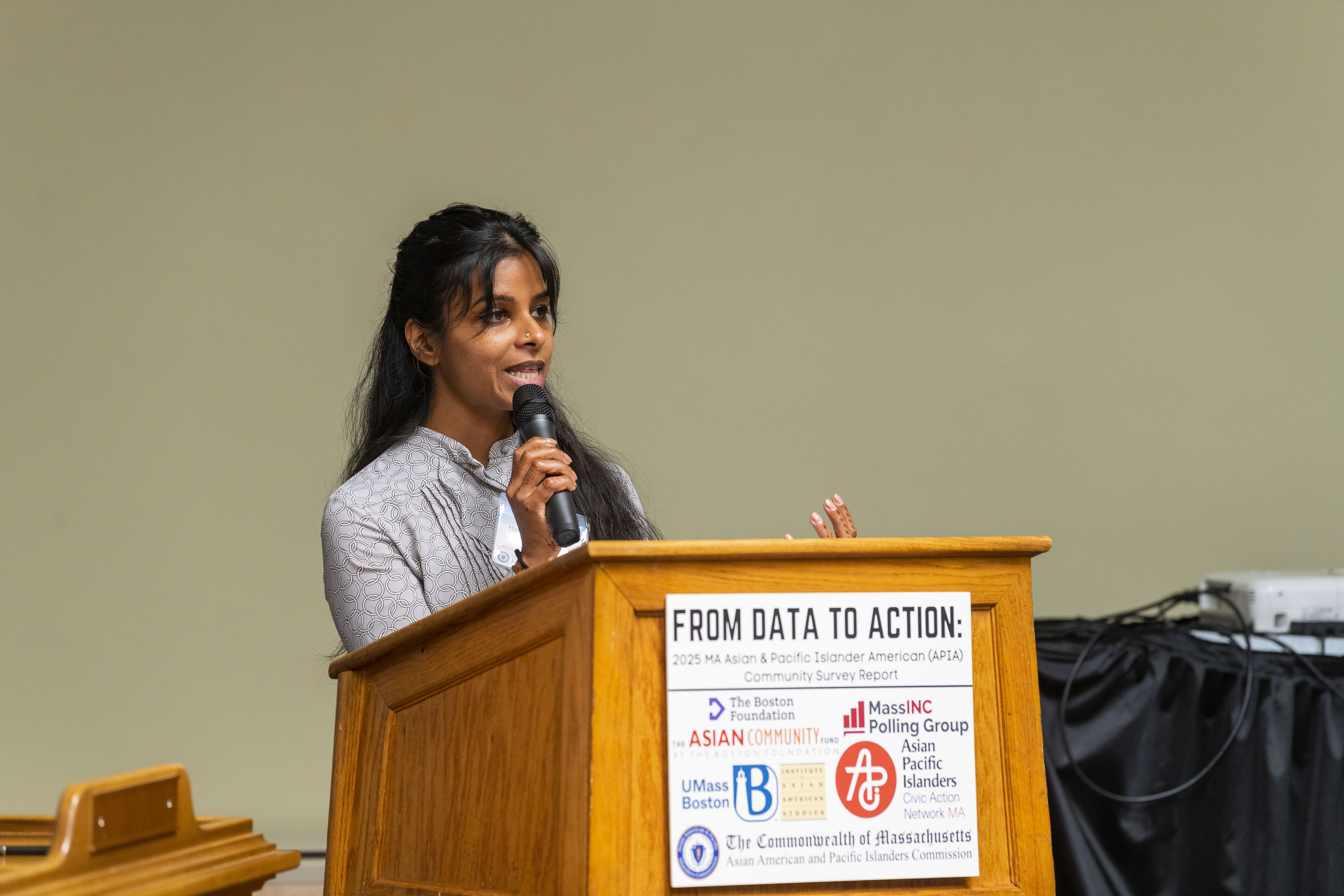
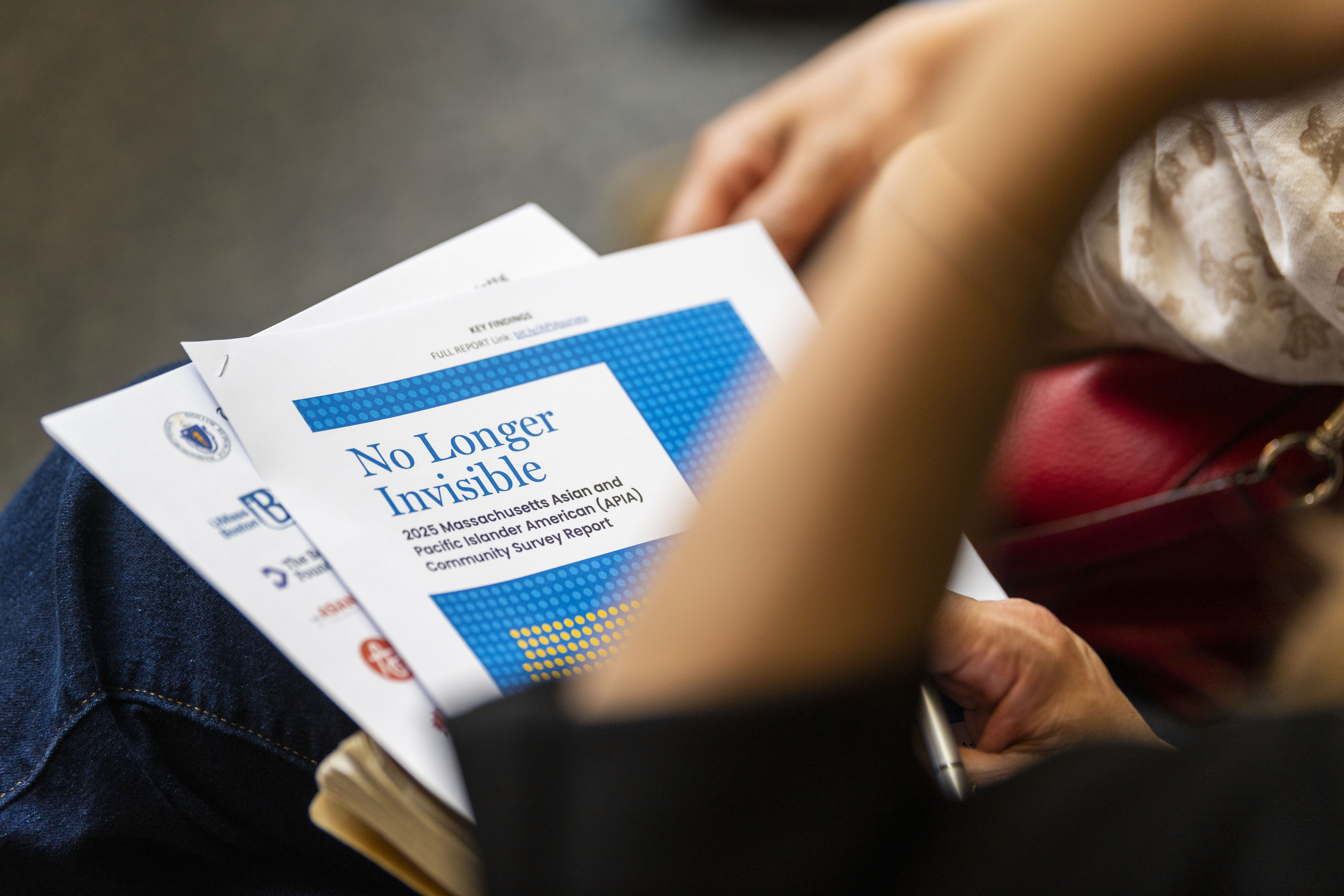
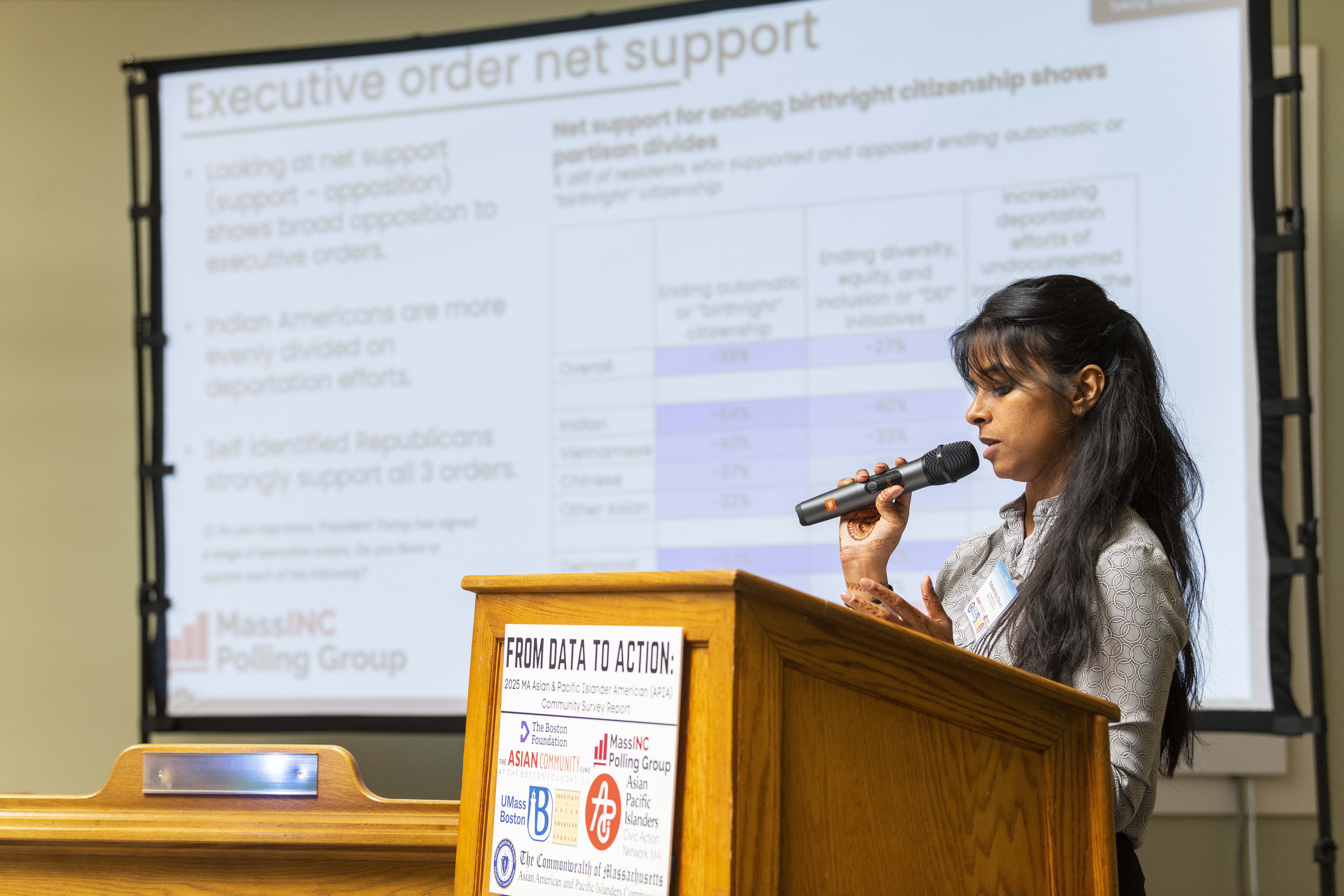
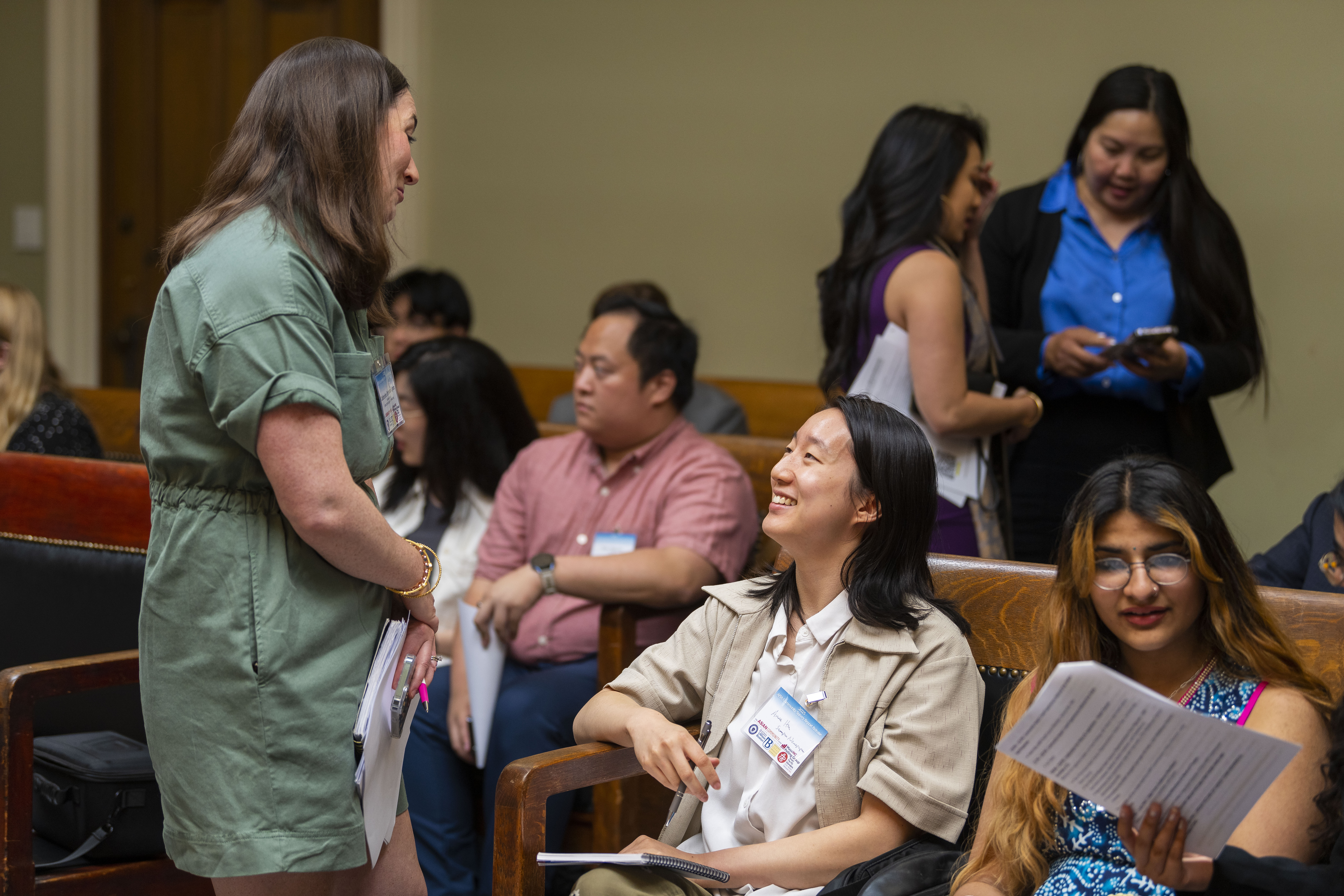
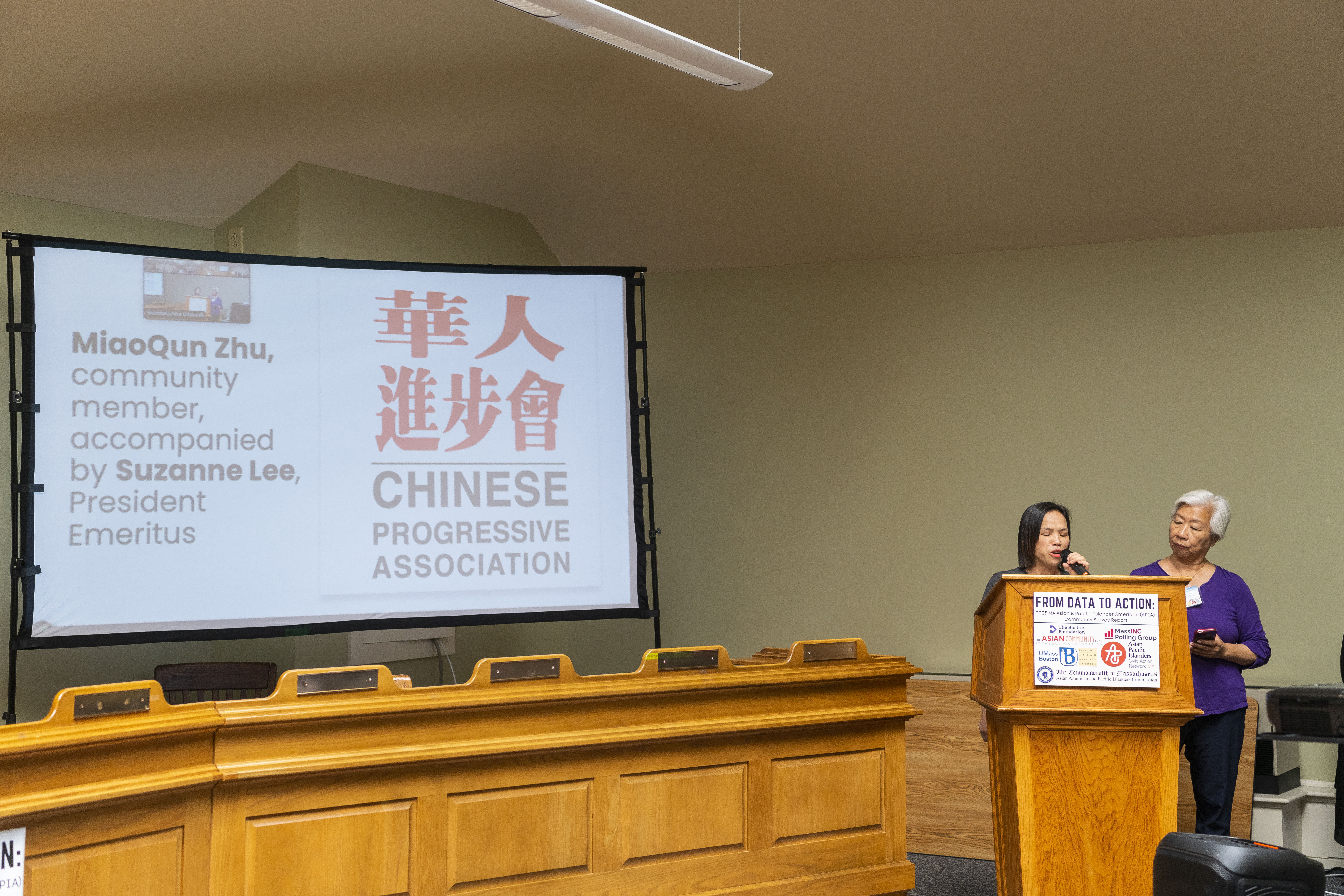

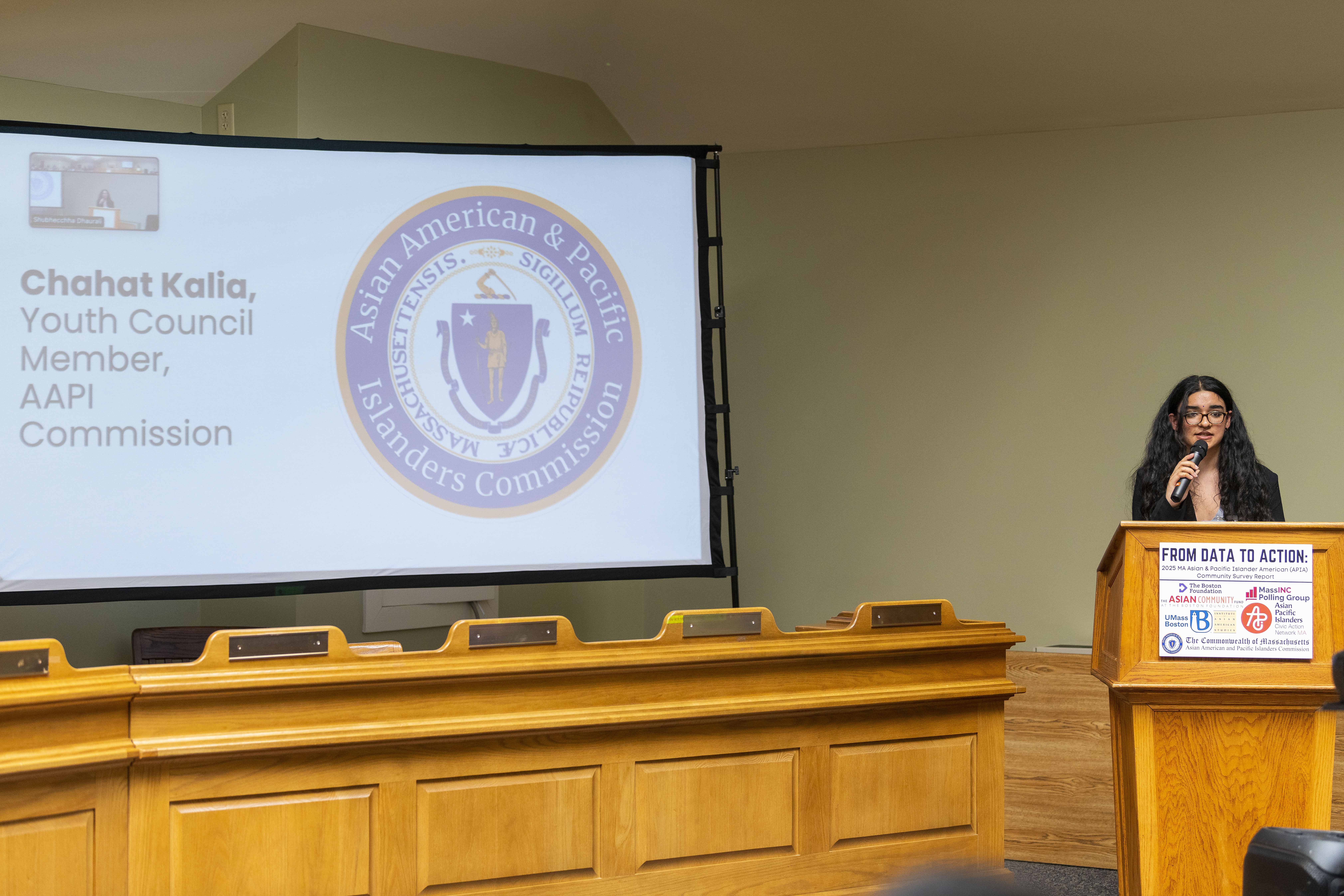
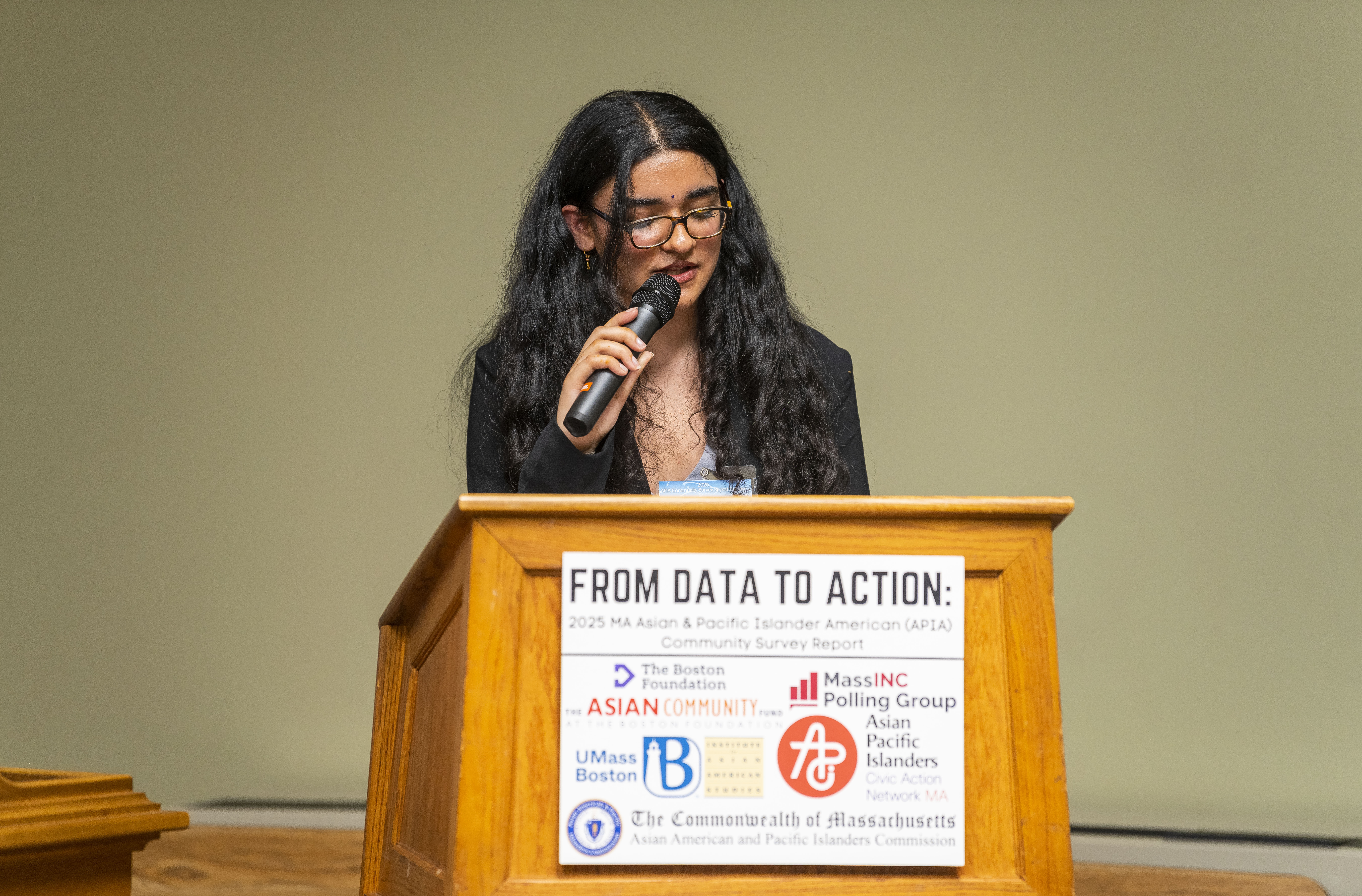
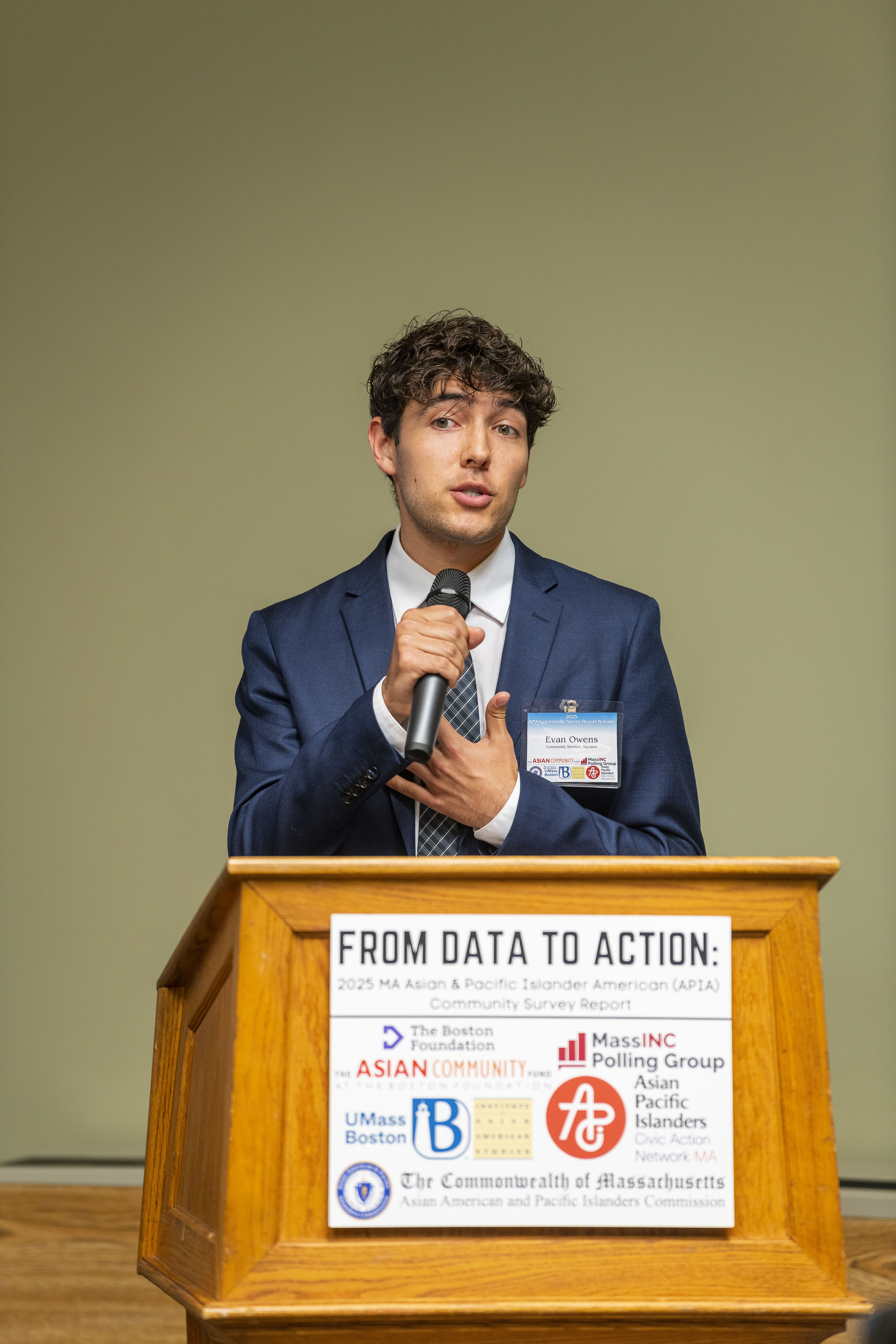
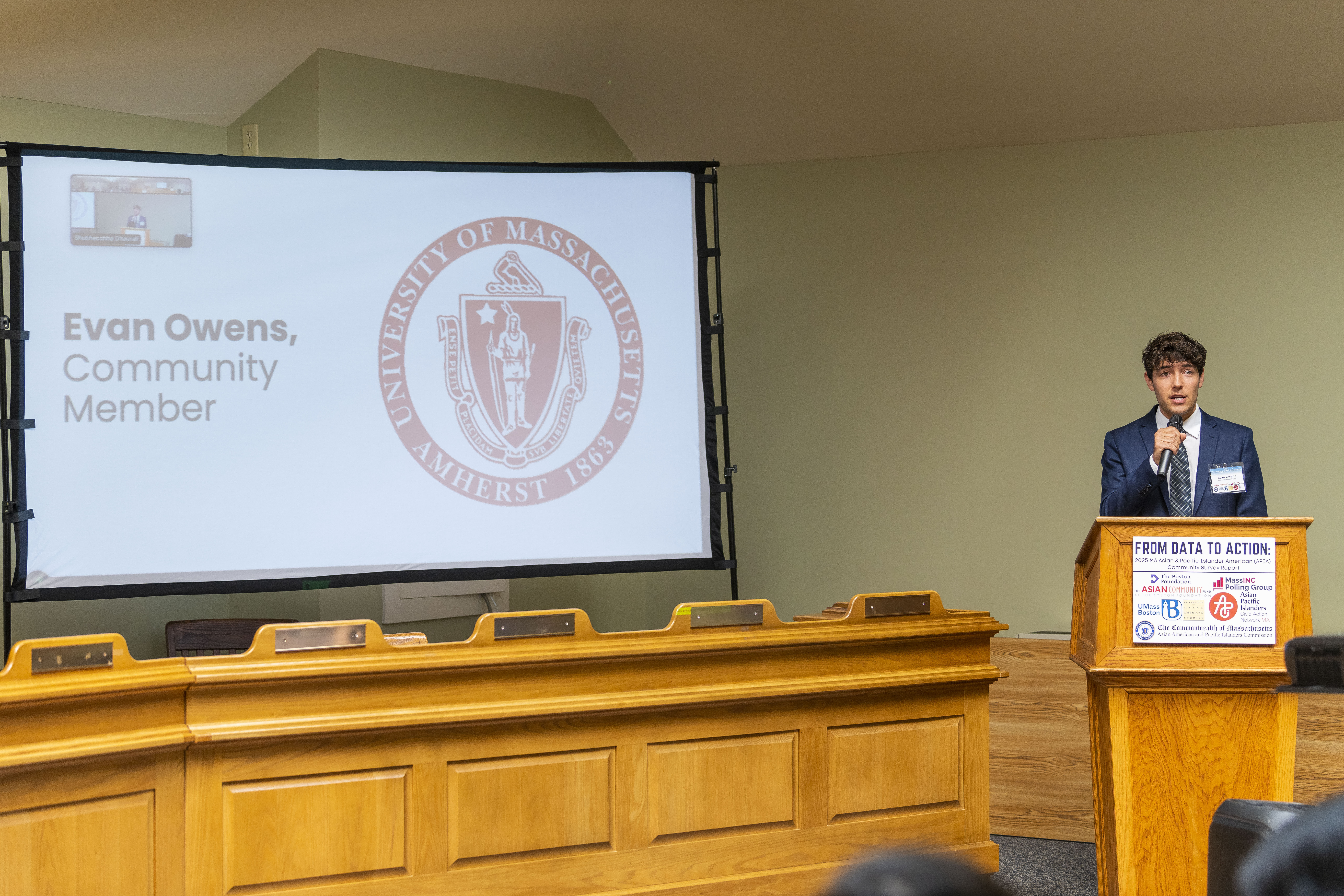
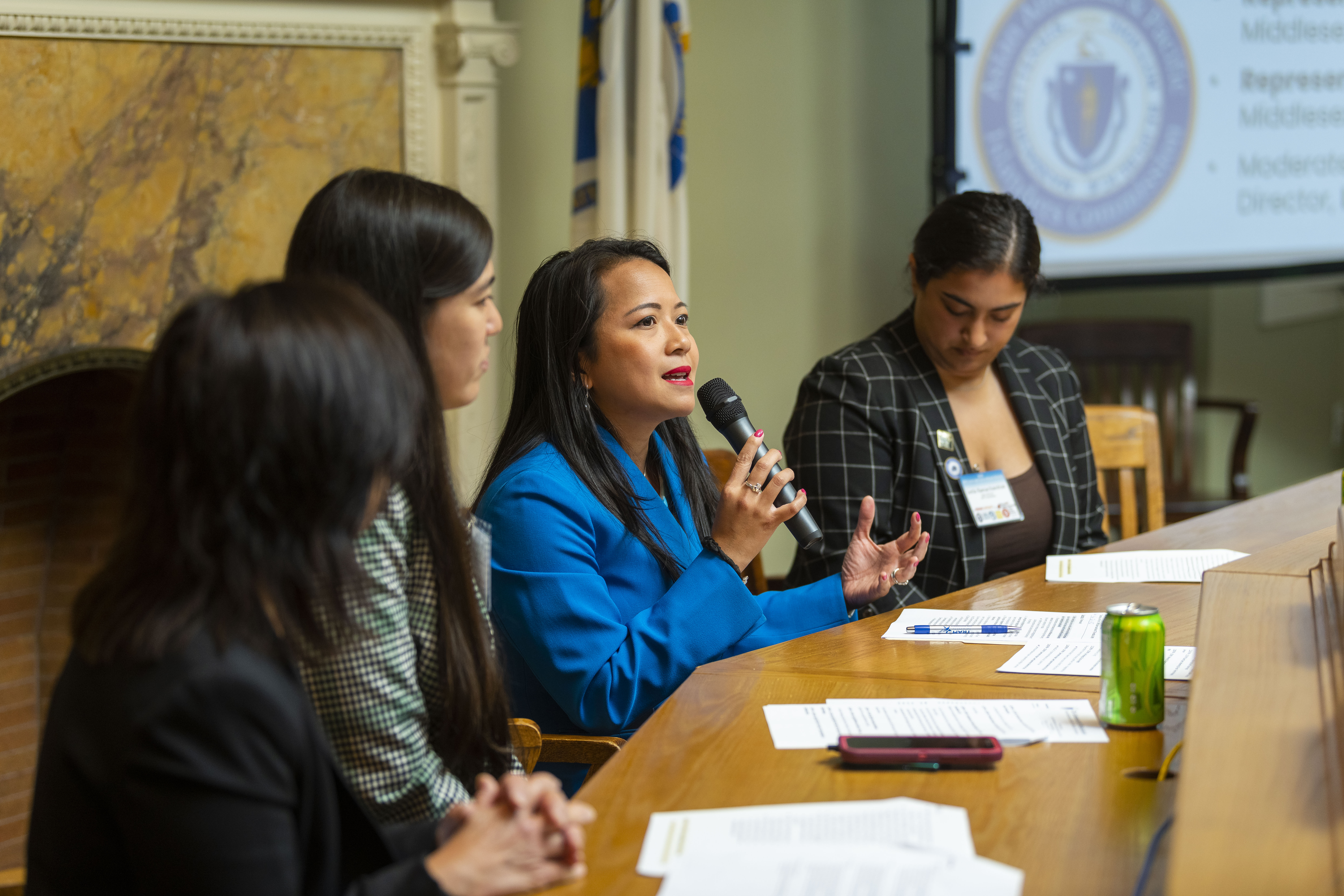
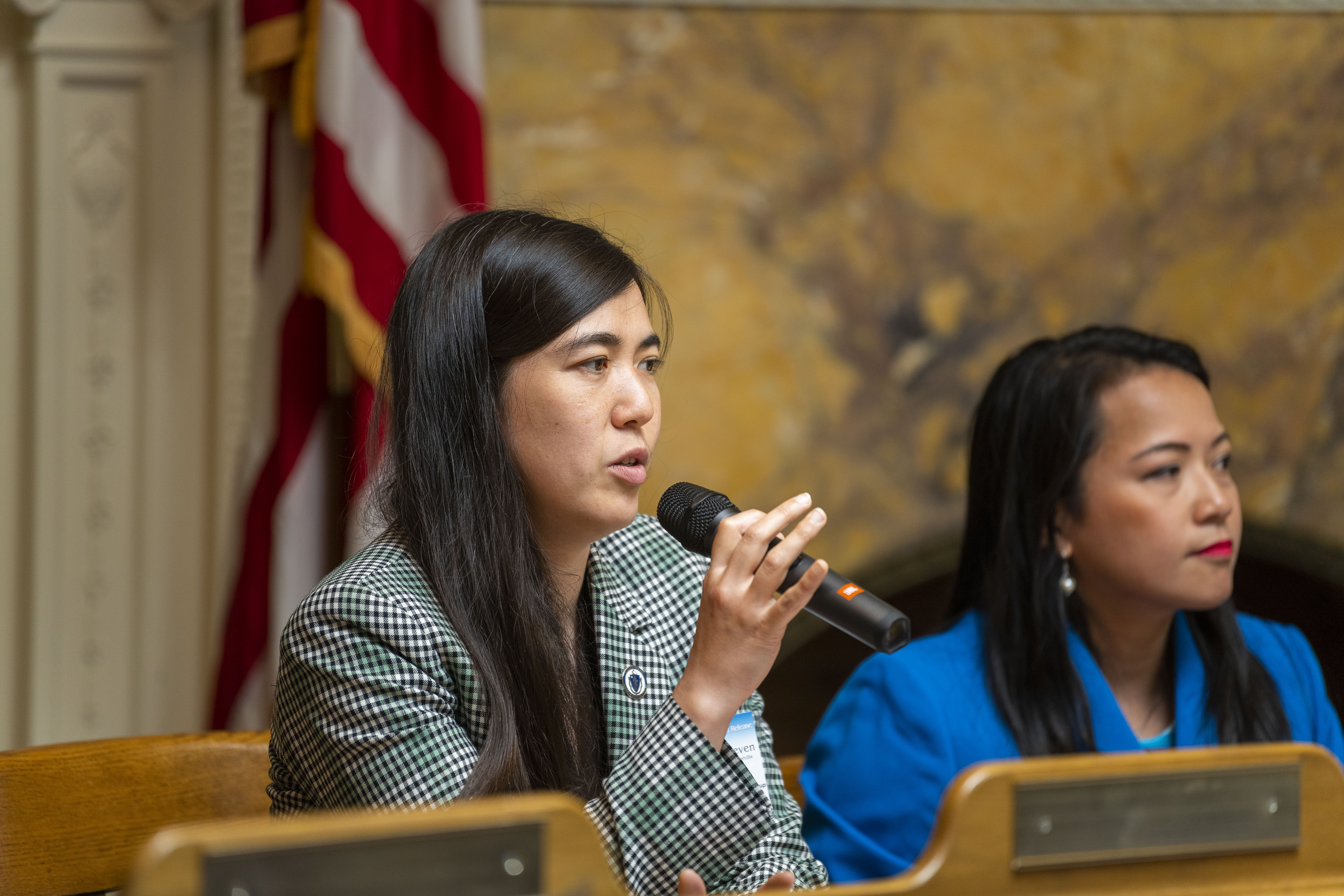
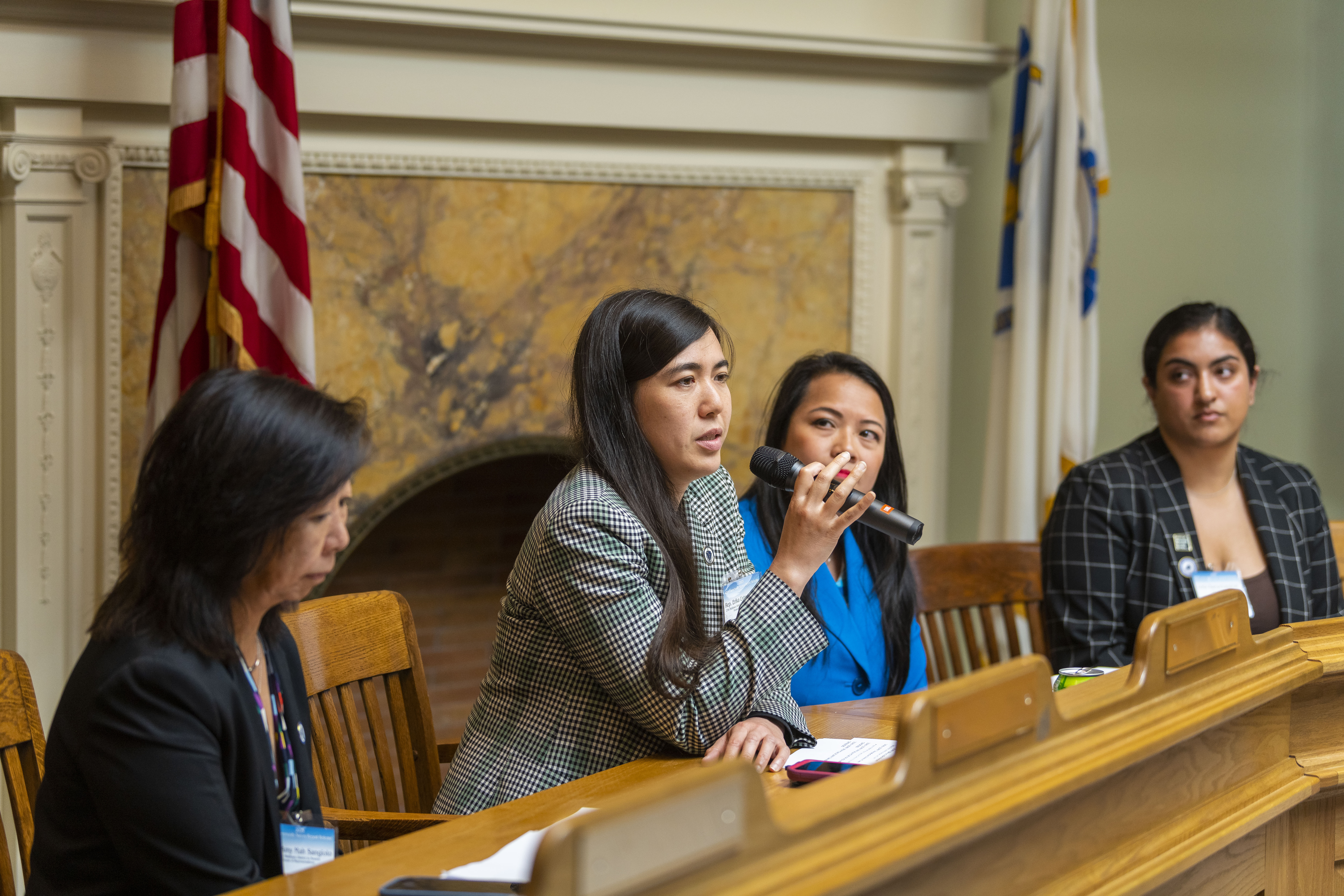

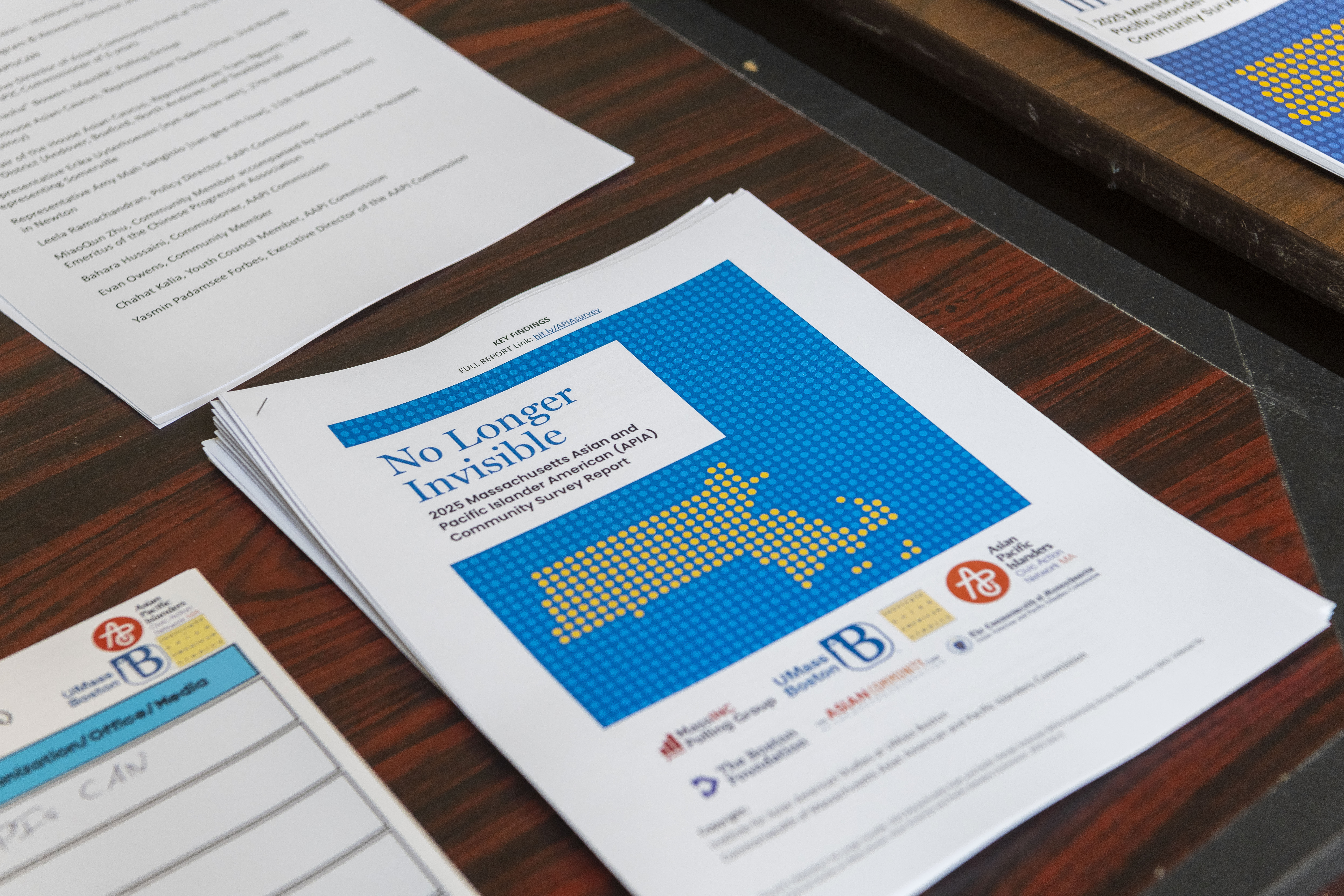
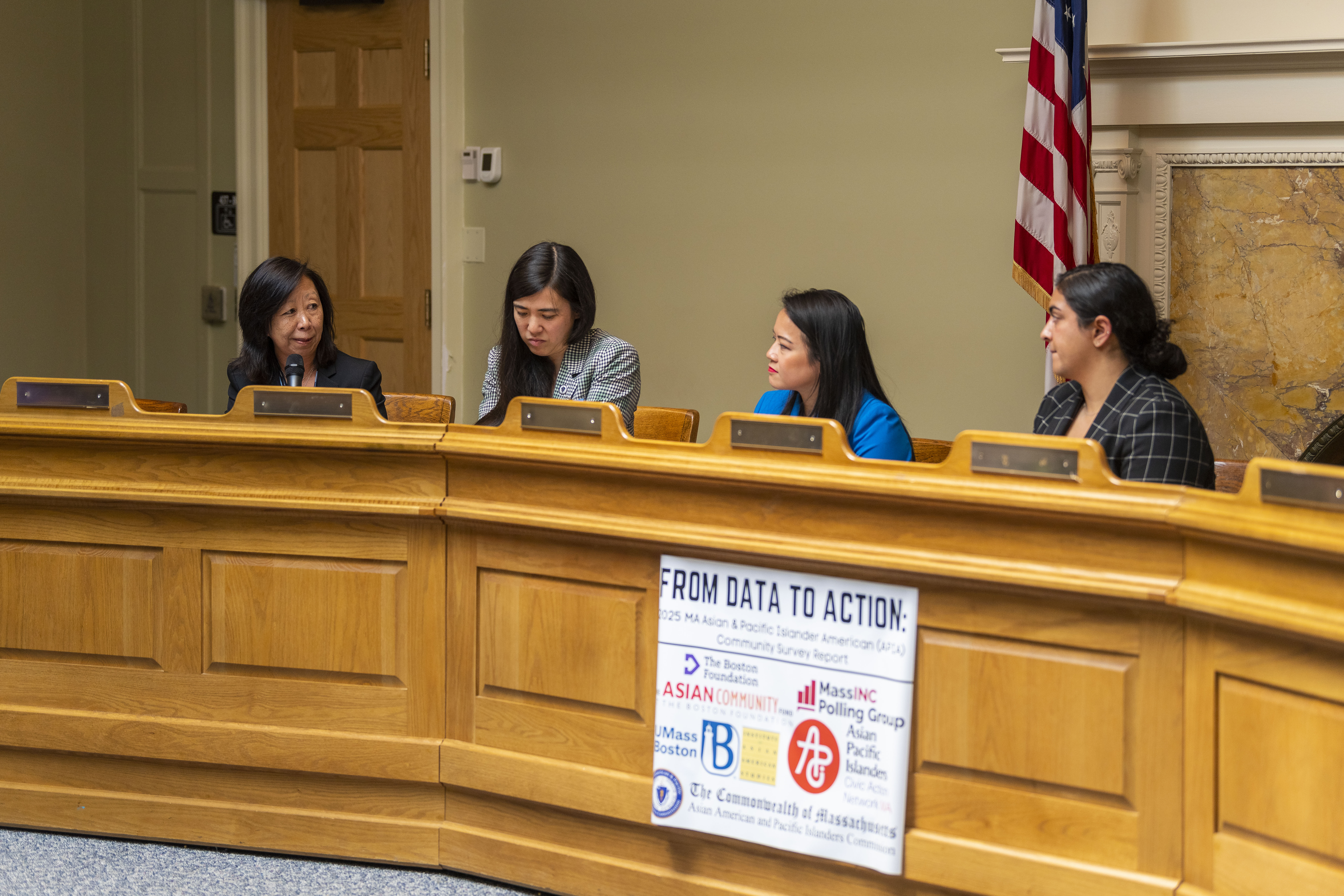
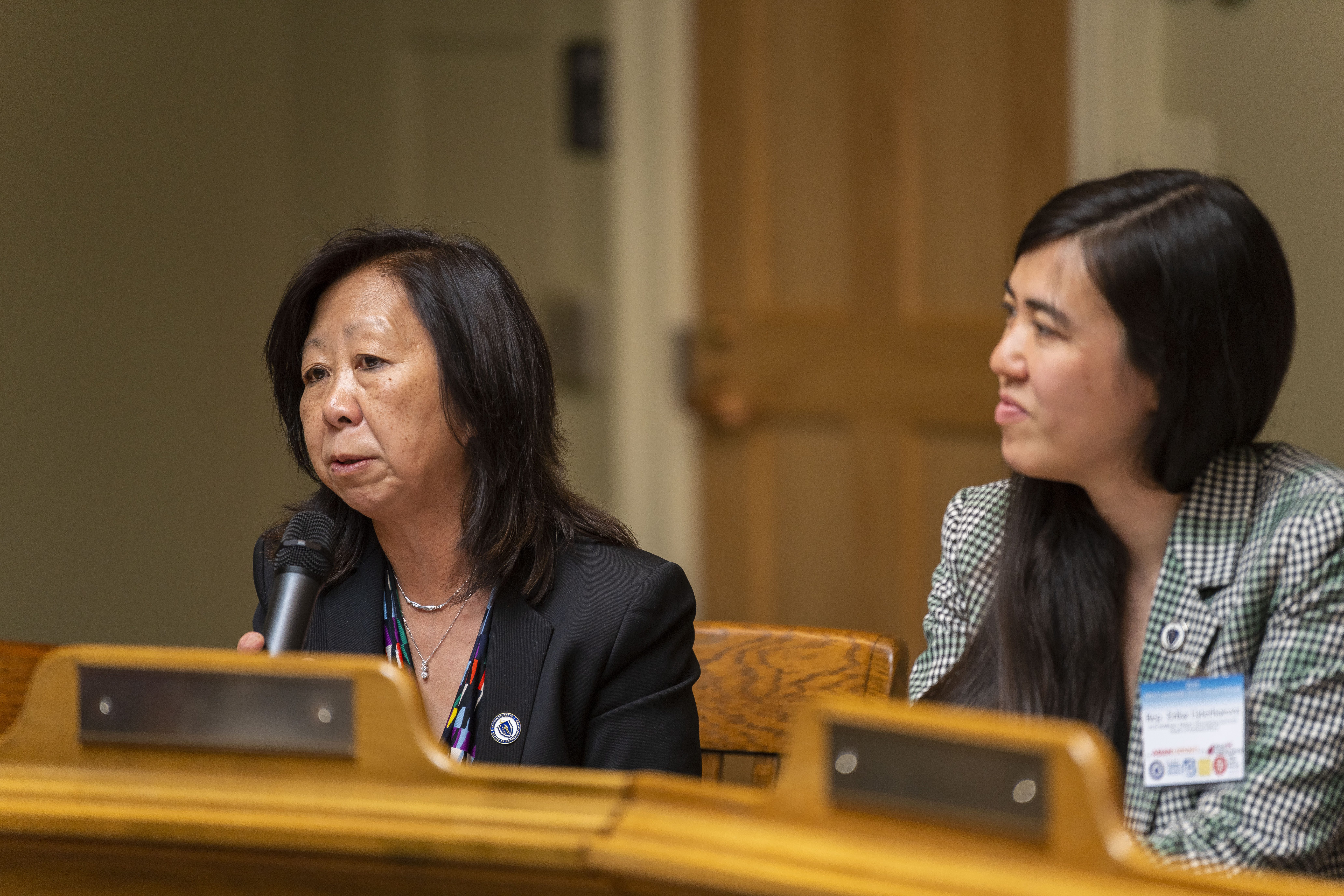


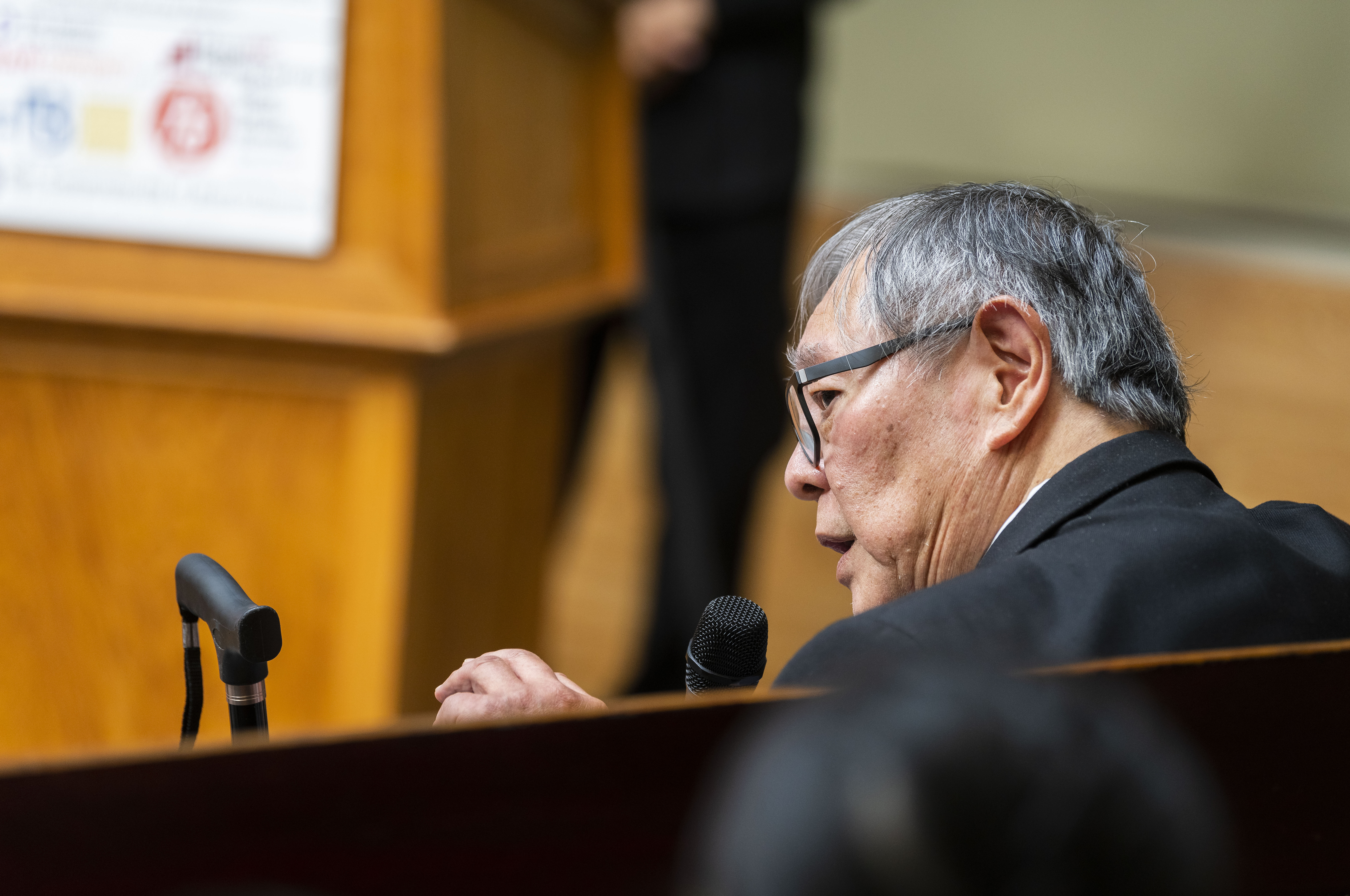
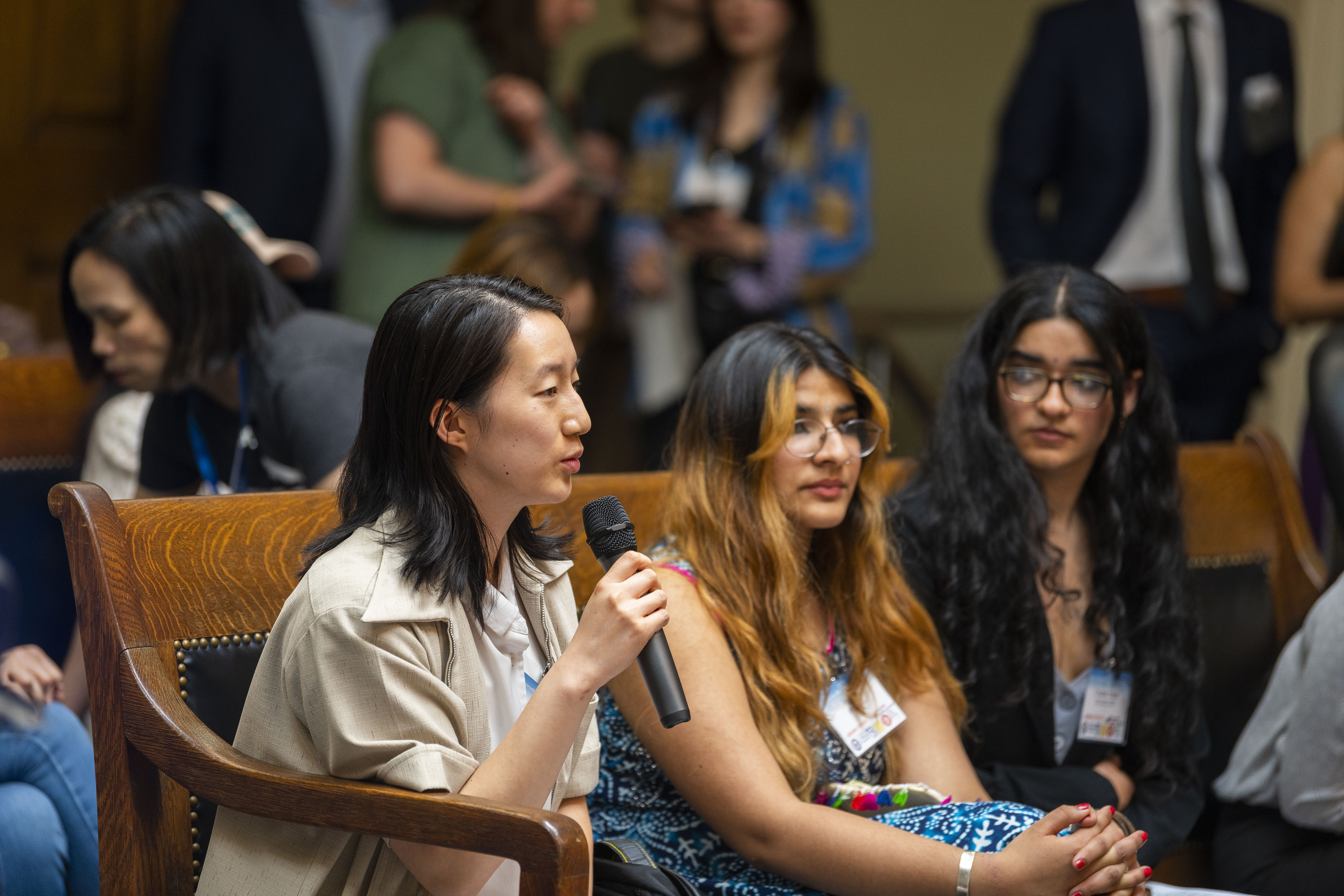
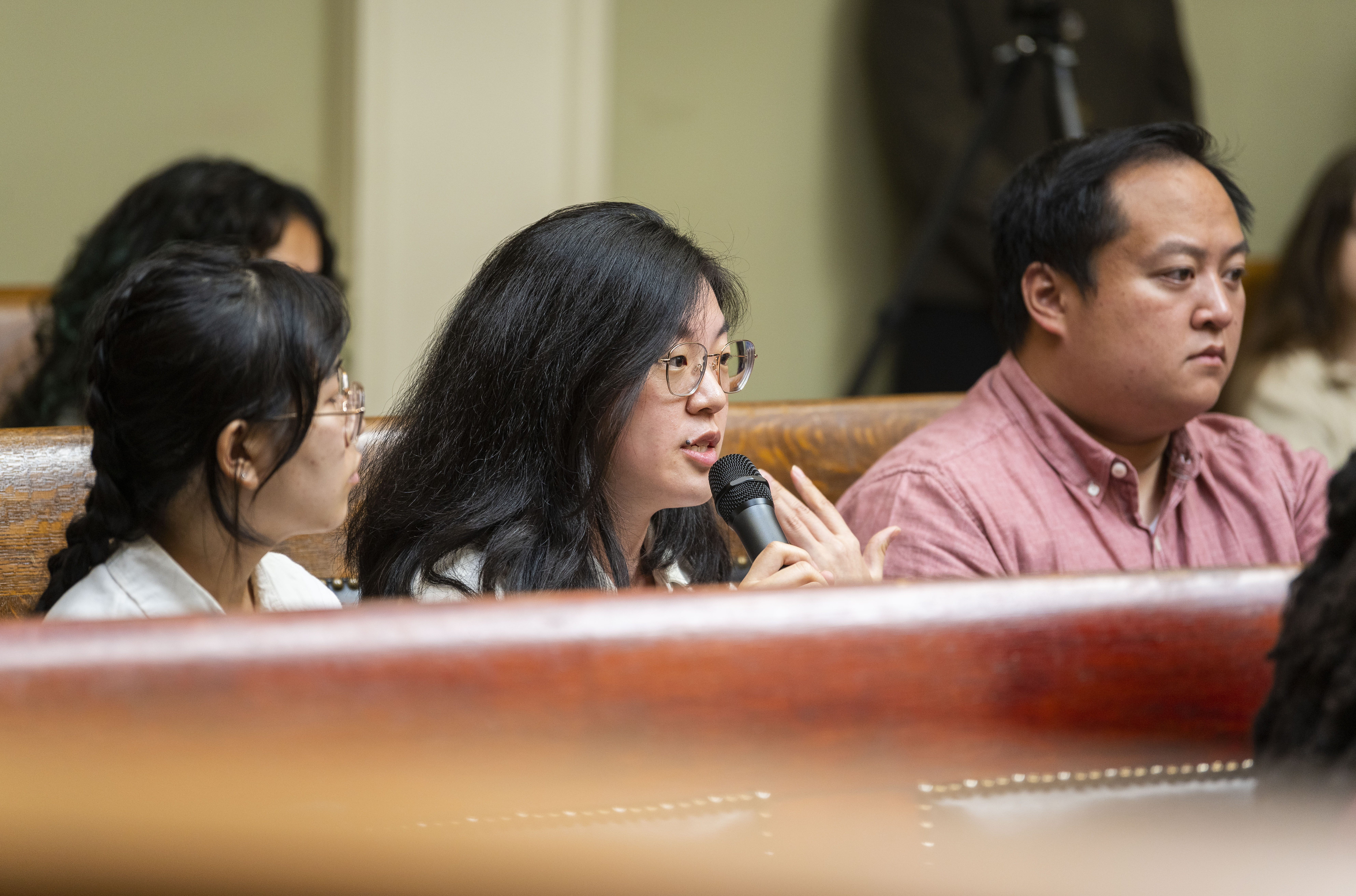
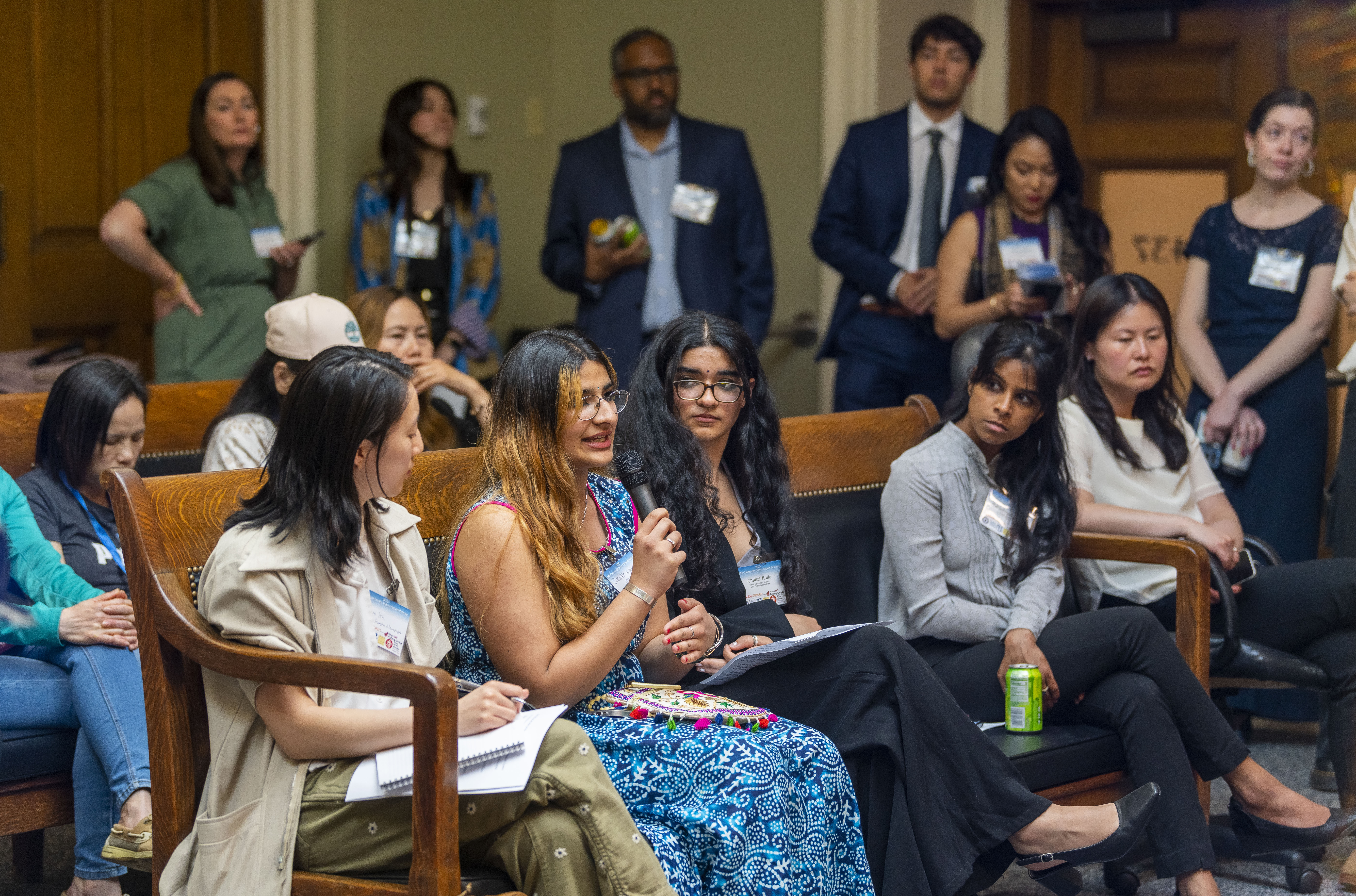

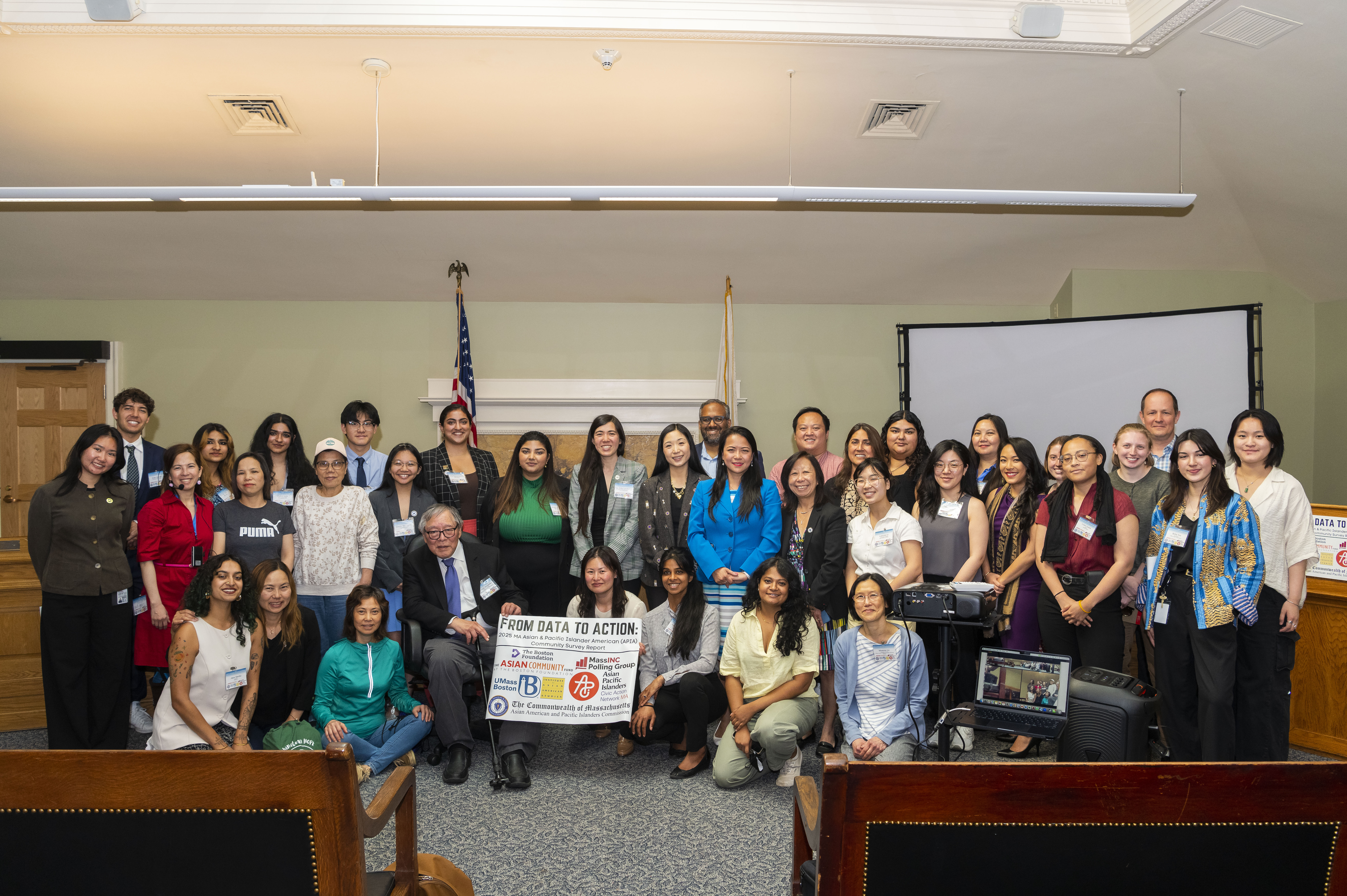
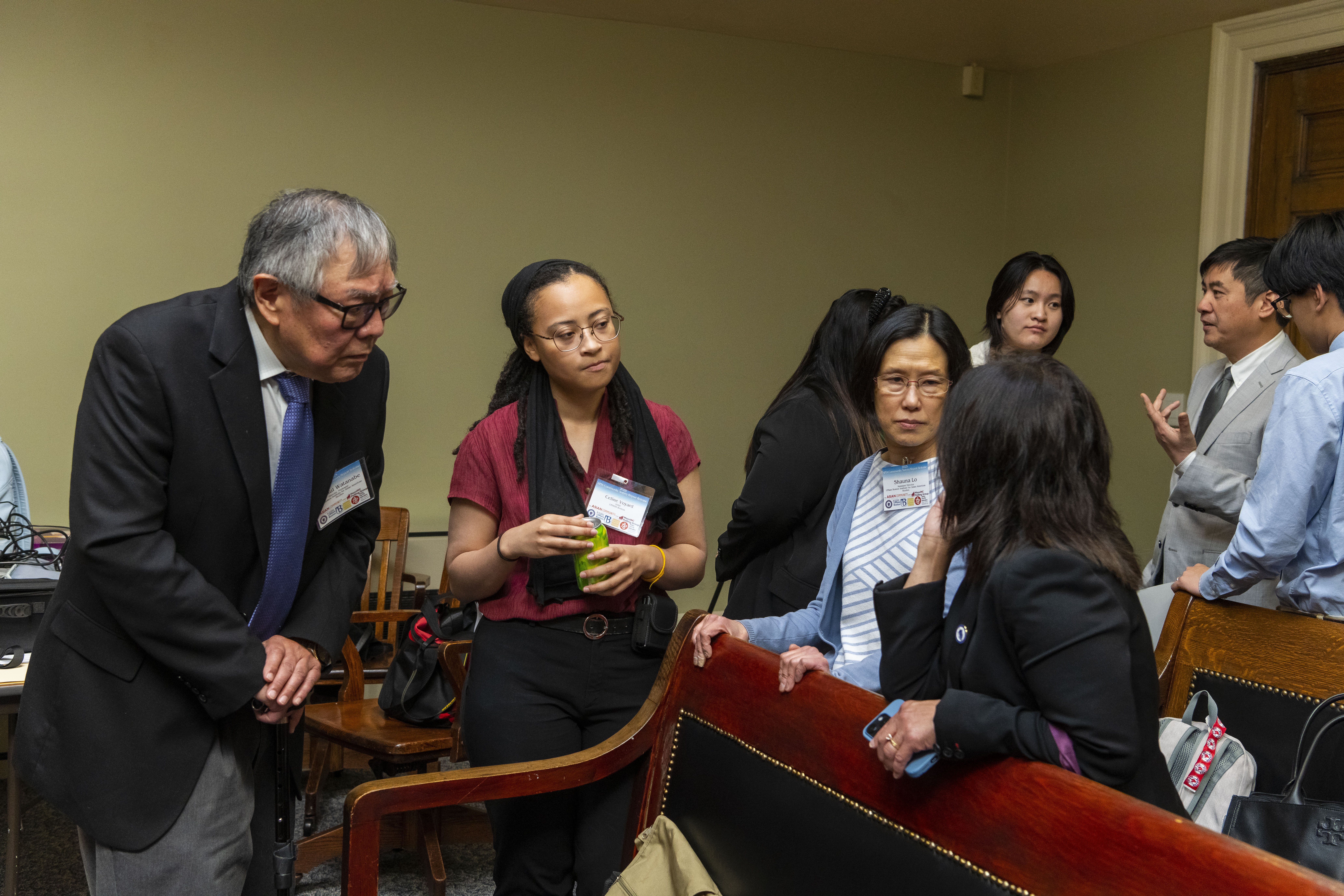
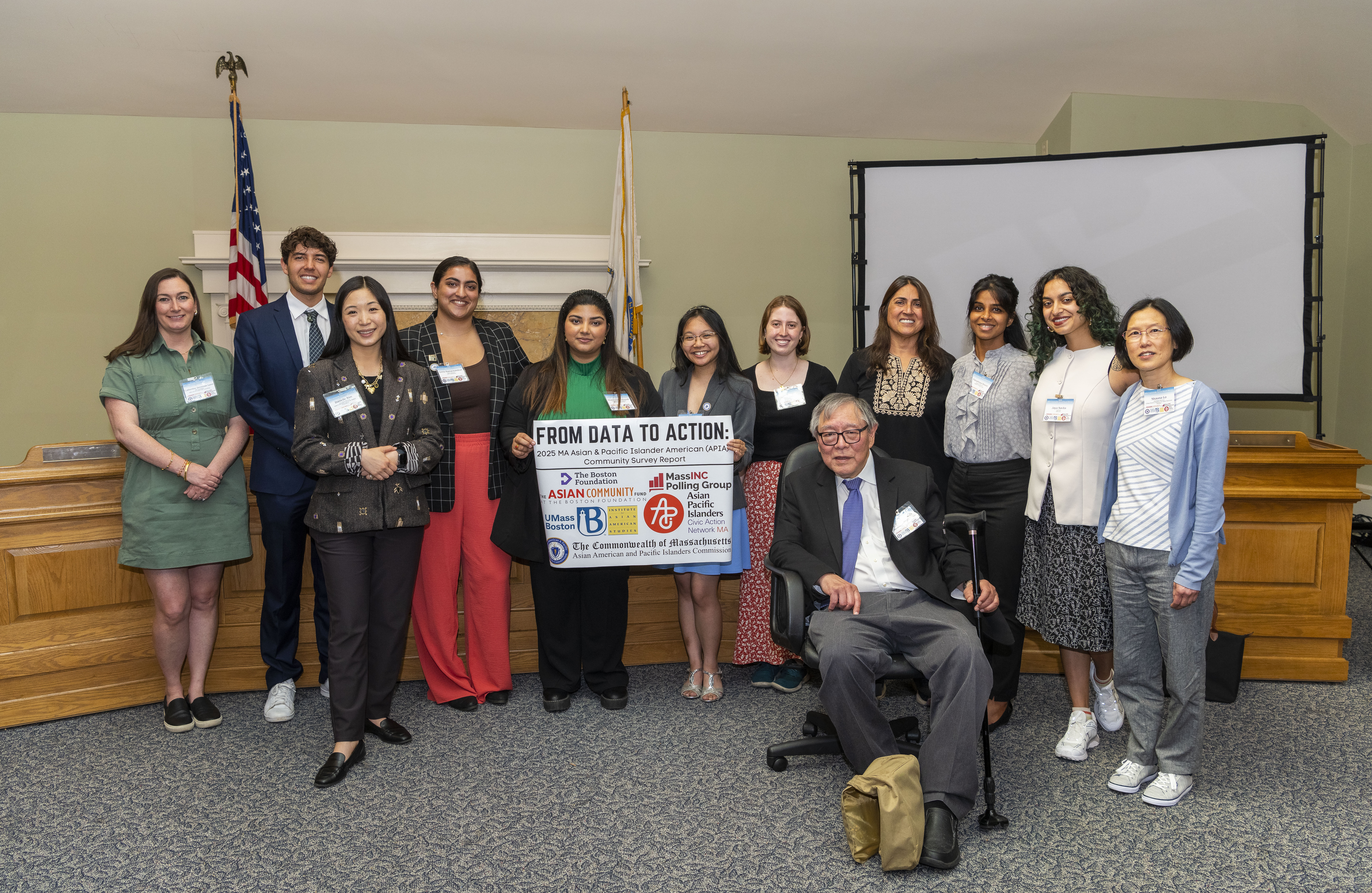
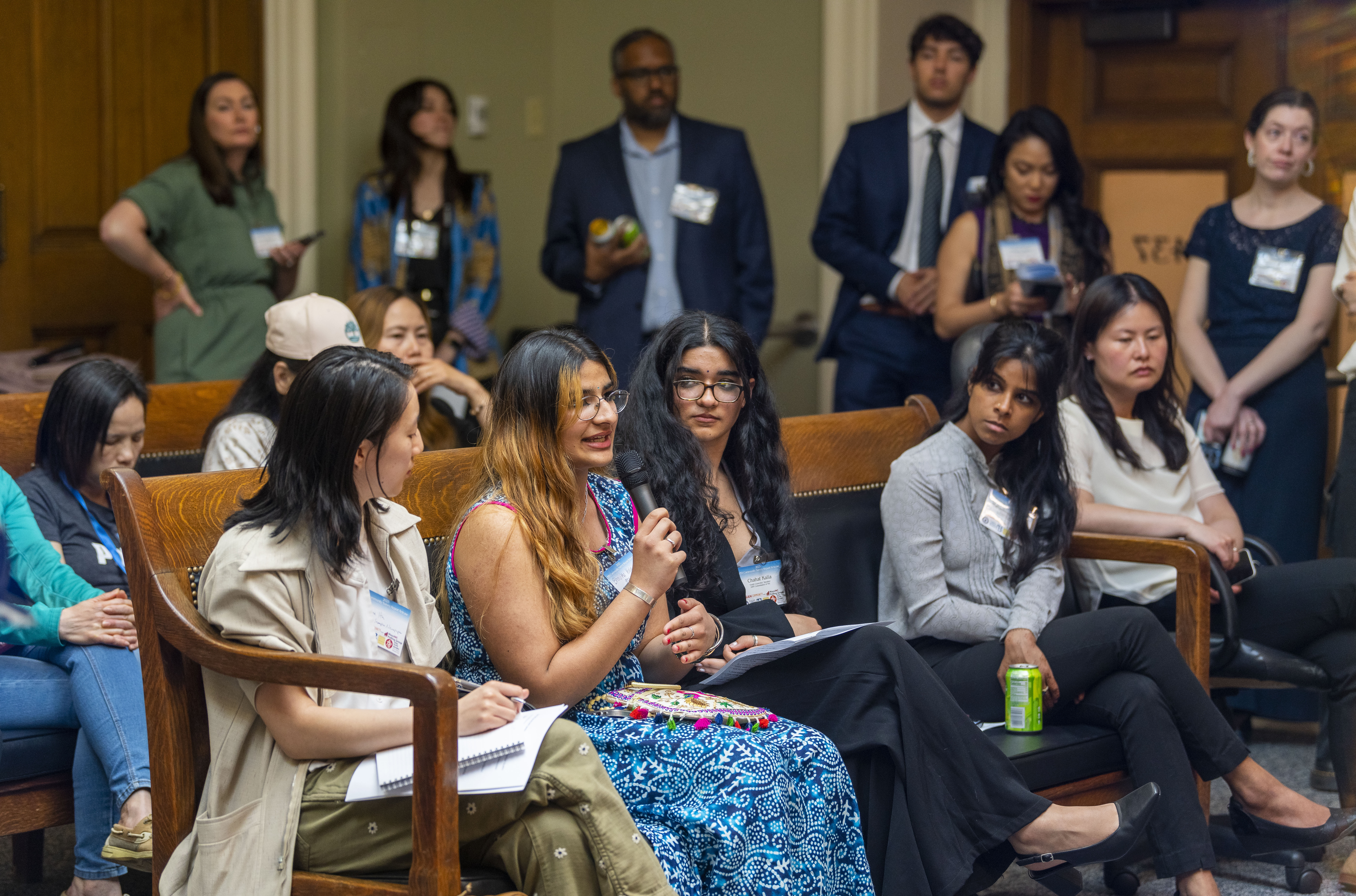
The project was a collaborative effort, dually led by the Institute for Asian American Studies (IAAS) at UMass Boston and the Massachusetts Asian American and Pacific Islander Commission (AAPIC). Outstanding, dedicated Asian and Pacific Islander American-serving non-profits, including the Asian and Pacific Islanders Civic Action Network (APIs CAN), the Asian Community Fund (ACF), and The Boston Foundation (TBF), provided some of the financial resources and expertise to make this study possible. It is largely due to the extraordinary vision and willingness of the state’s APIA community that this first step has been initiated in what we hope will become a regular and continually improving Massachusetts Asian and Pacific Islander American Community Survey
Asian American & Pacific Islanders Commission
One Ashburton Place, 12th Fl
Boston, MA 02108
[email protected]
617-367-9333 ext. 662







